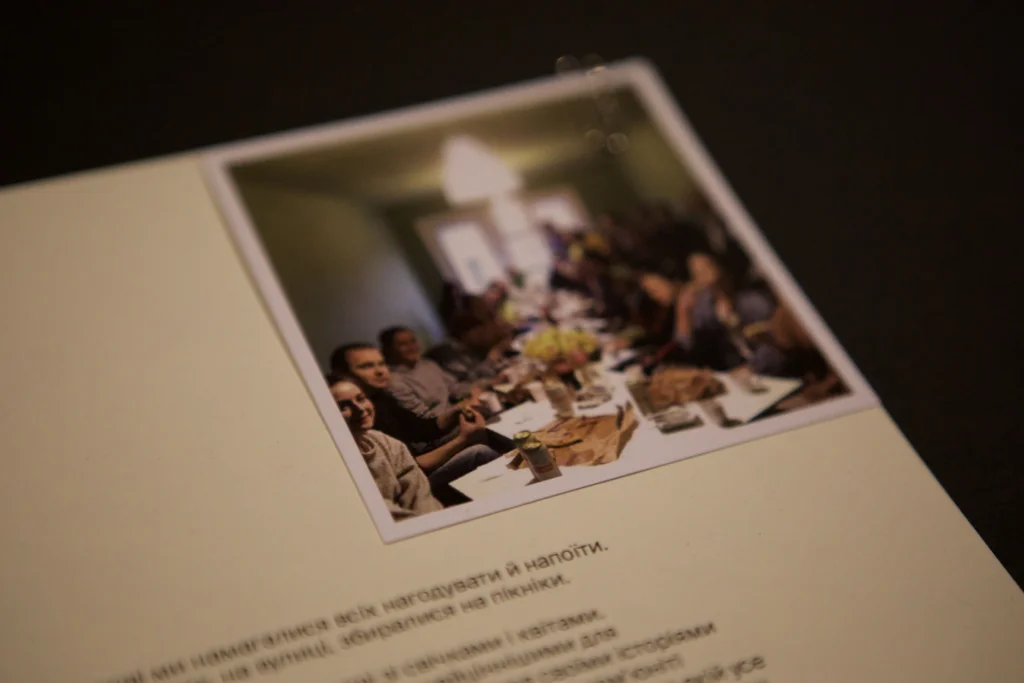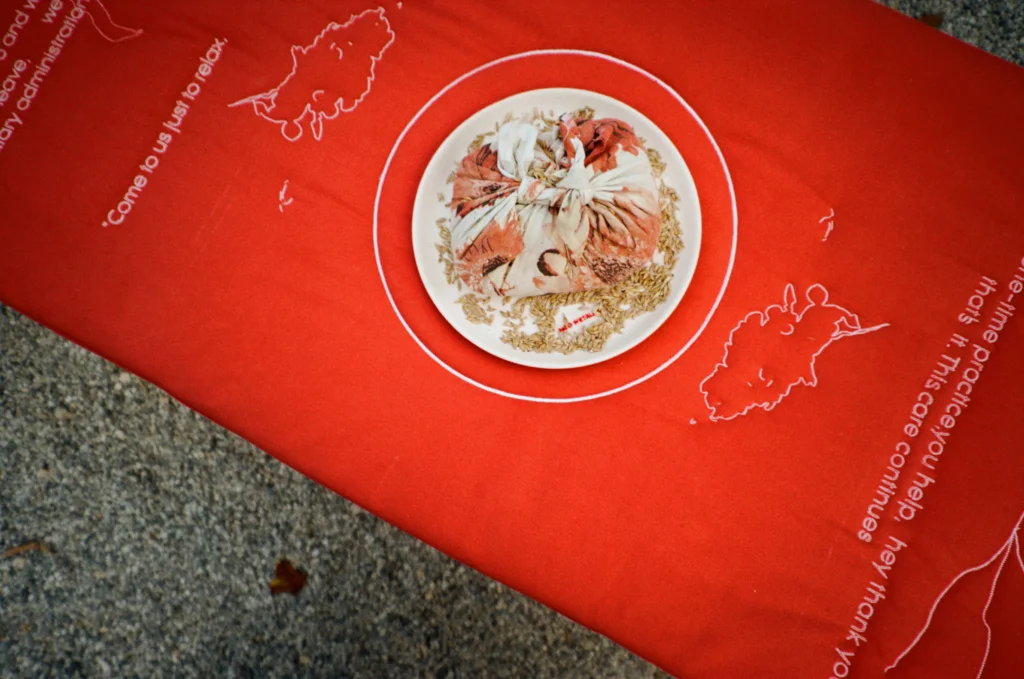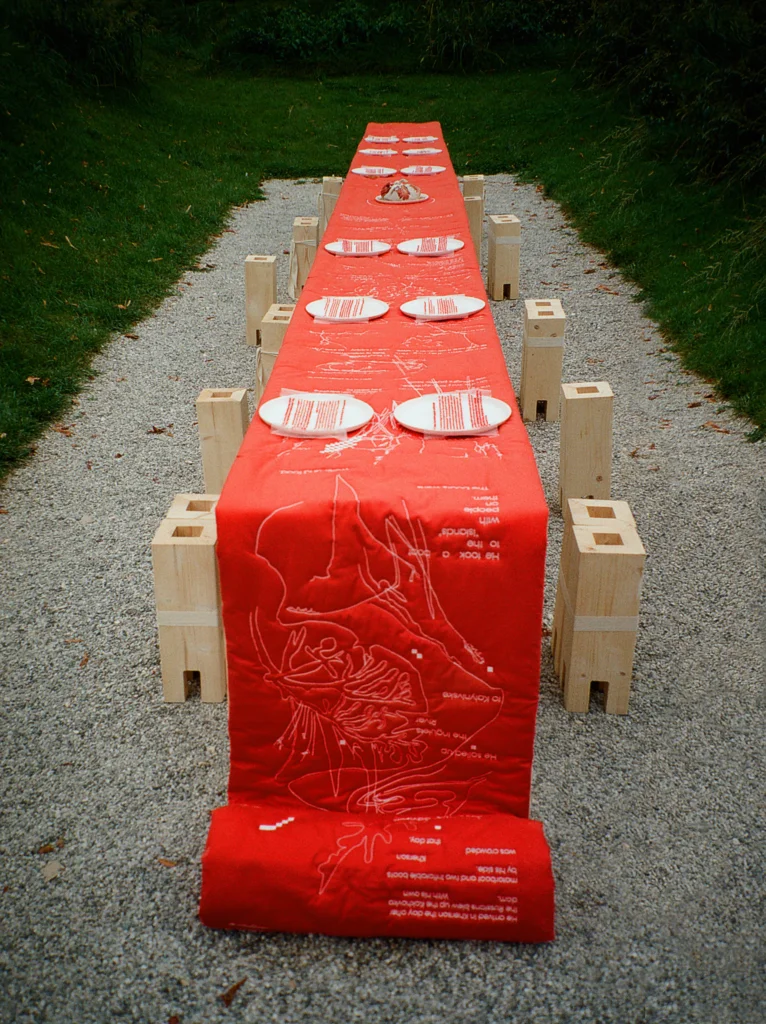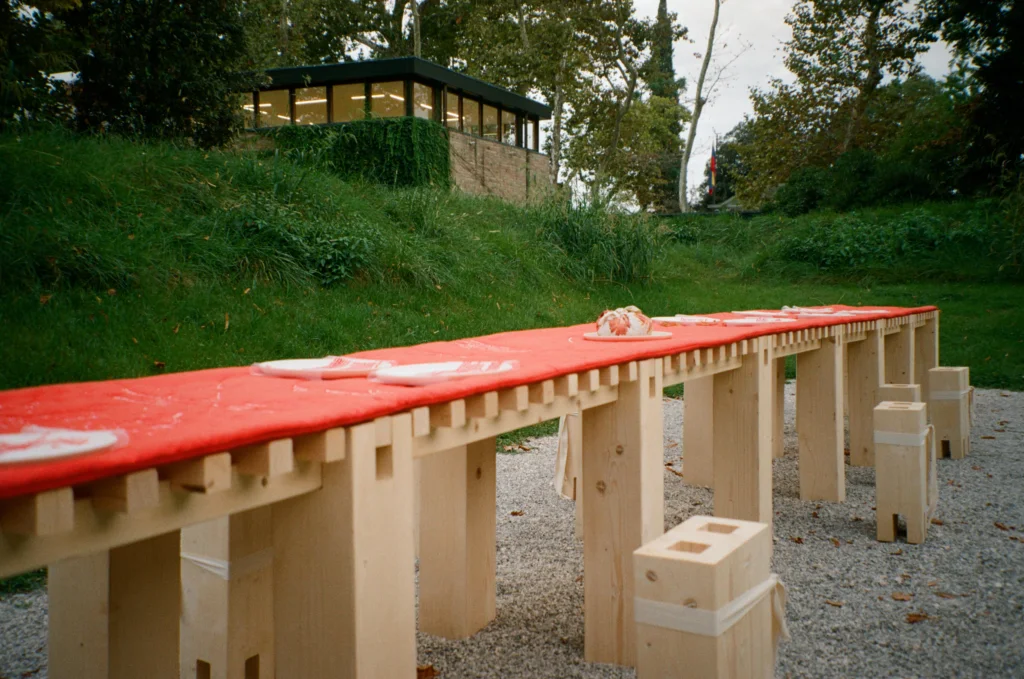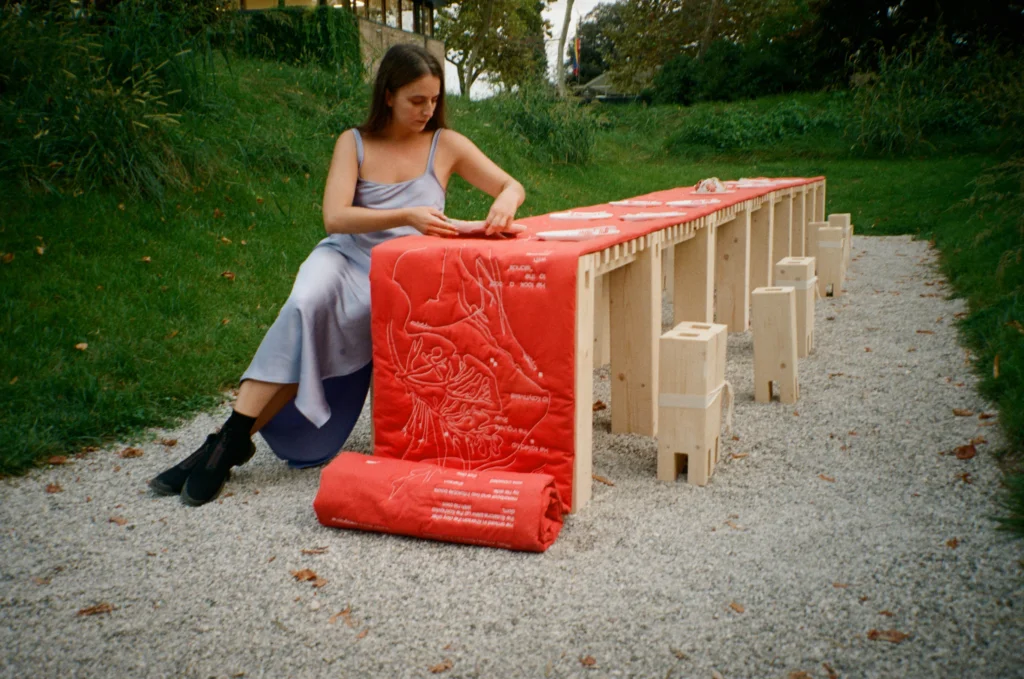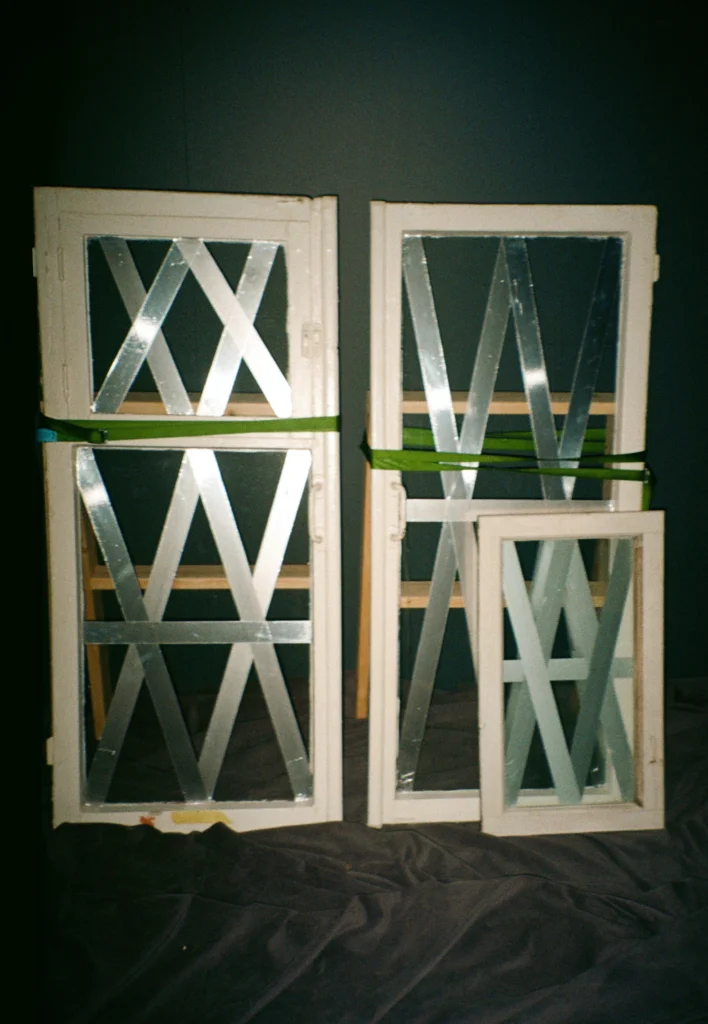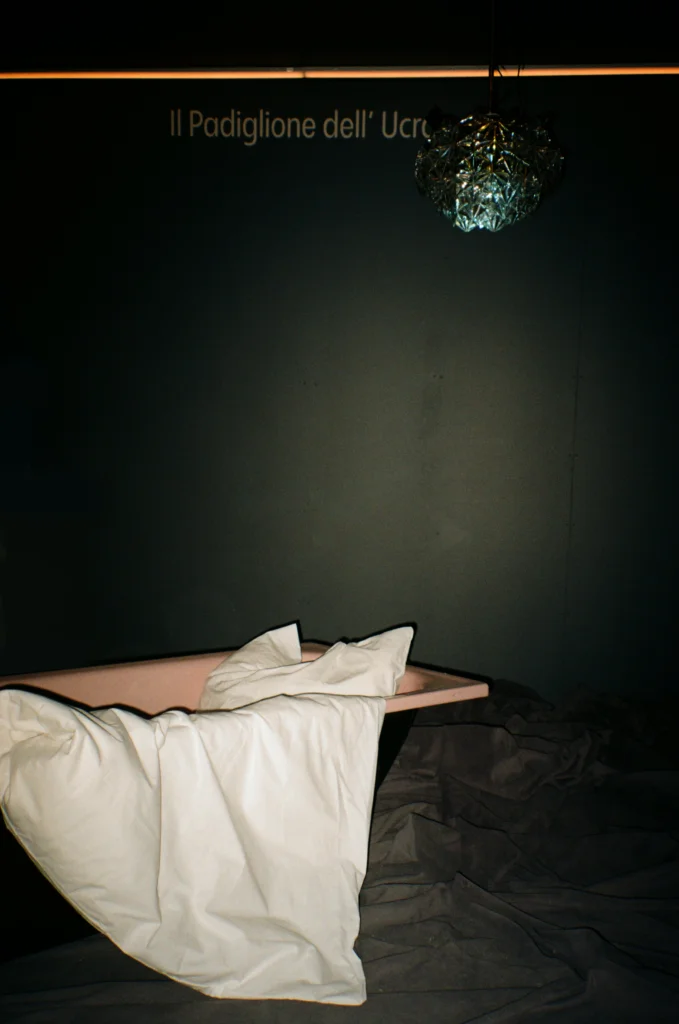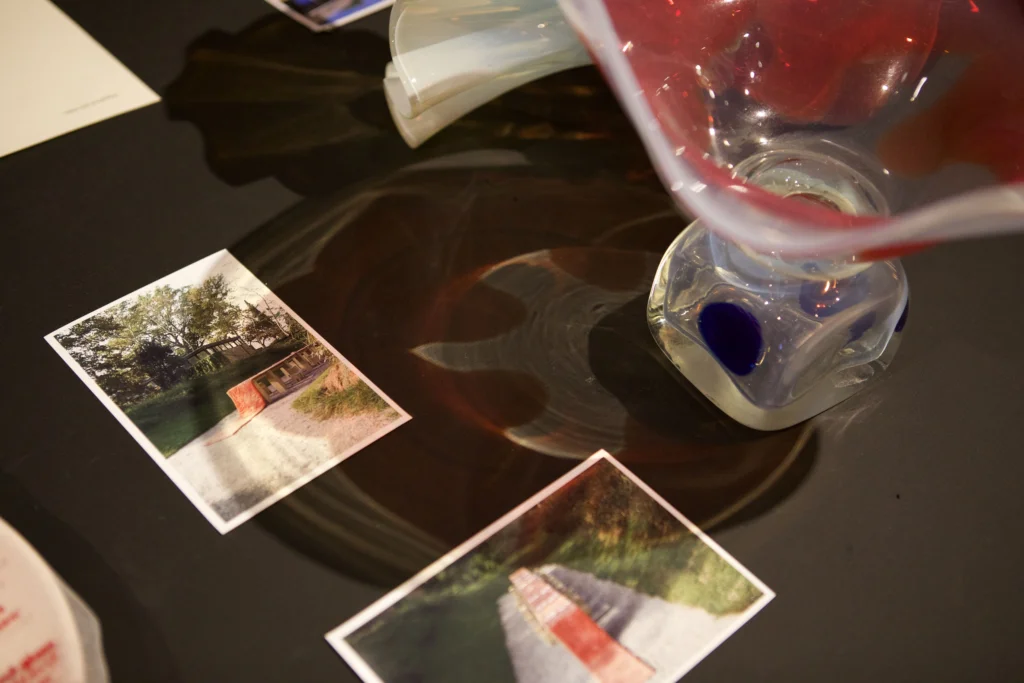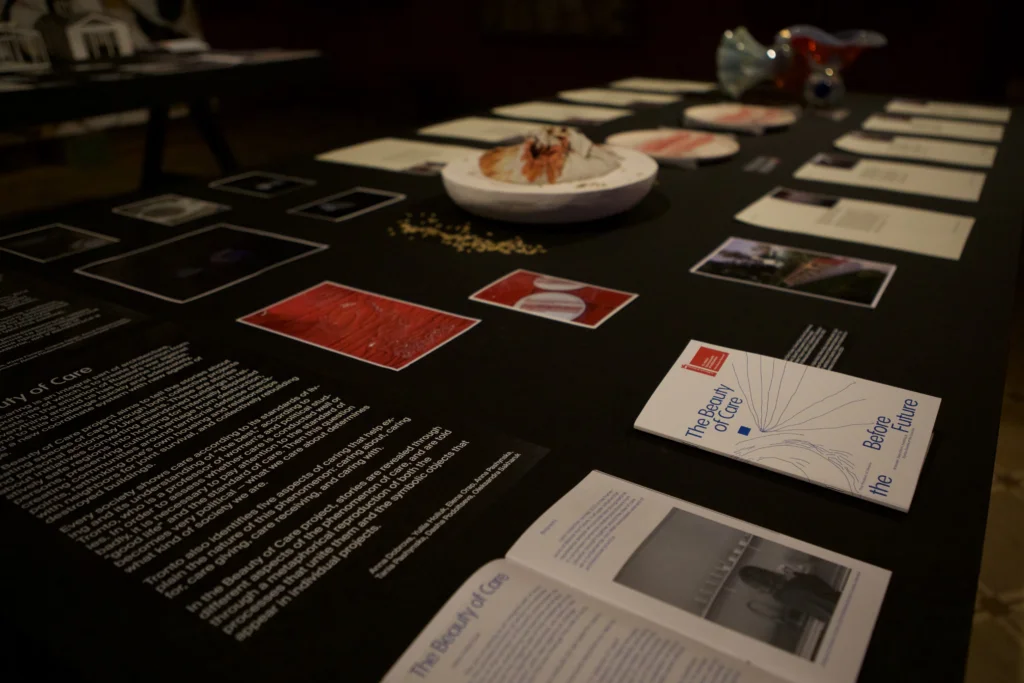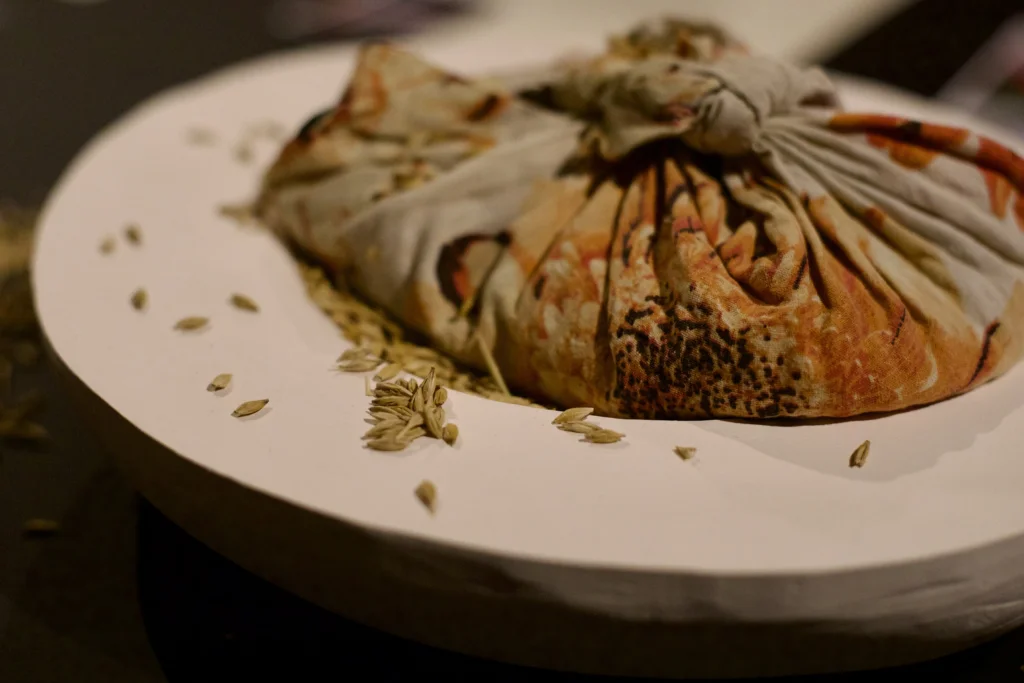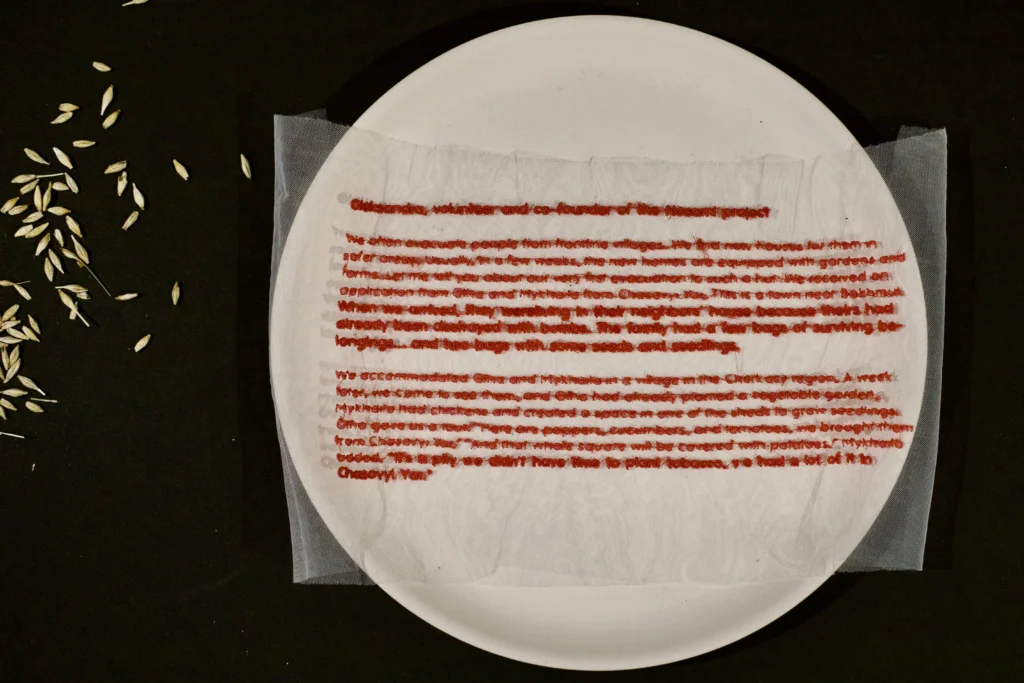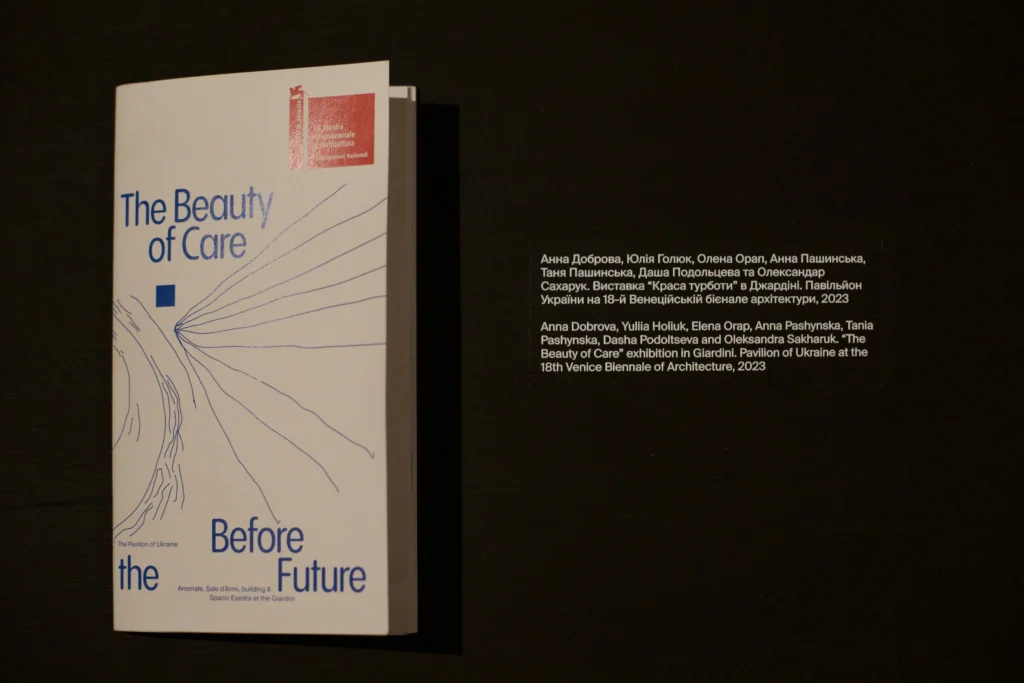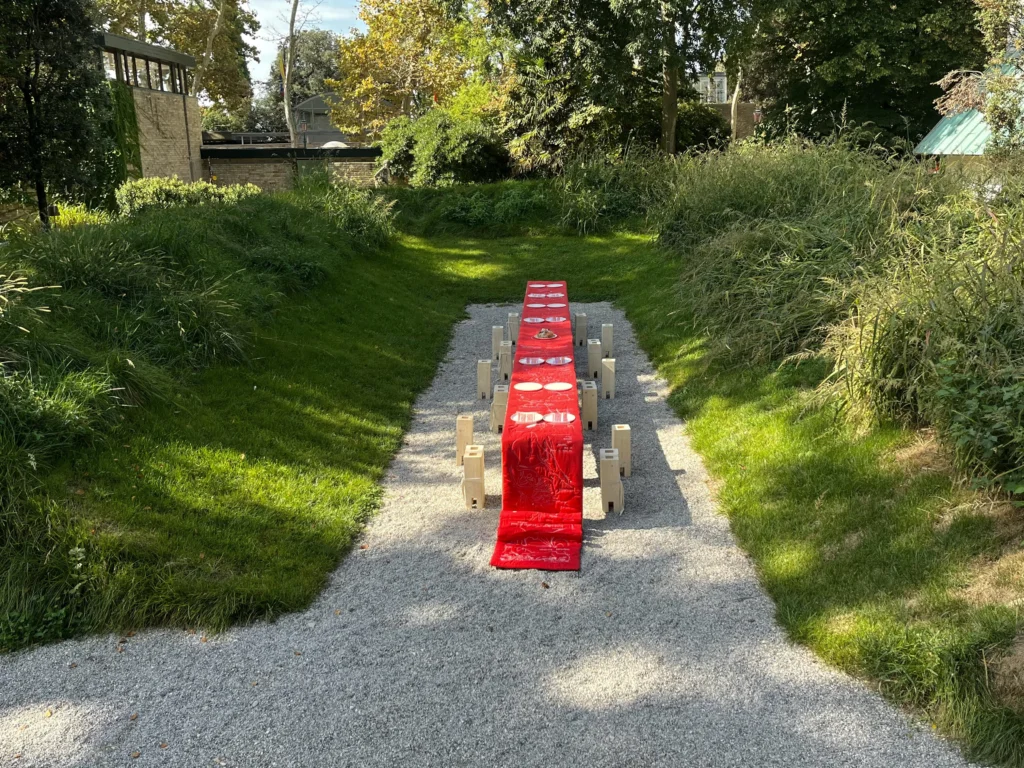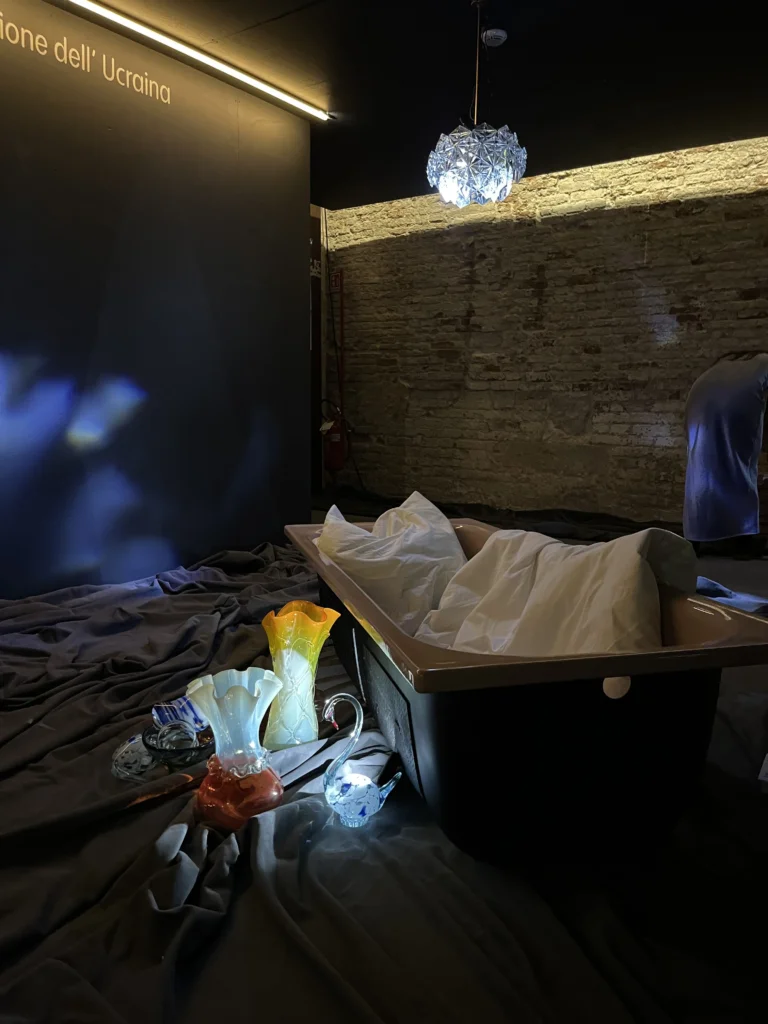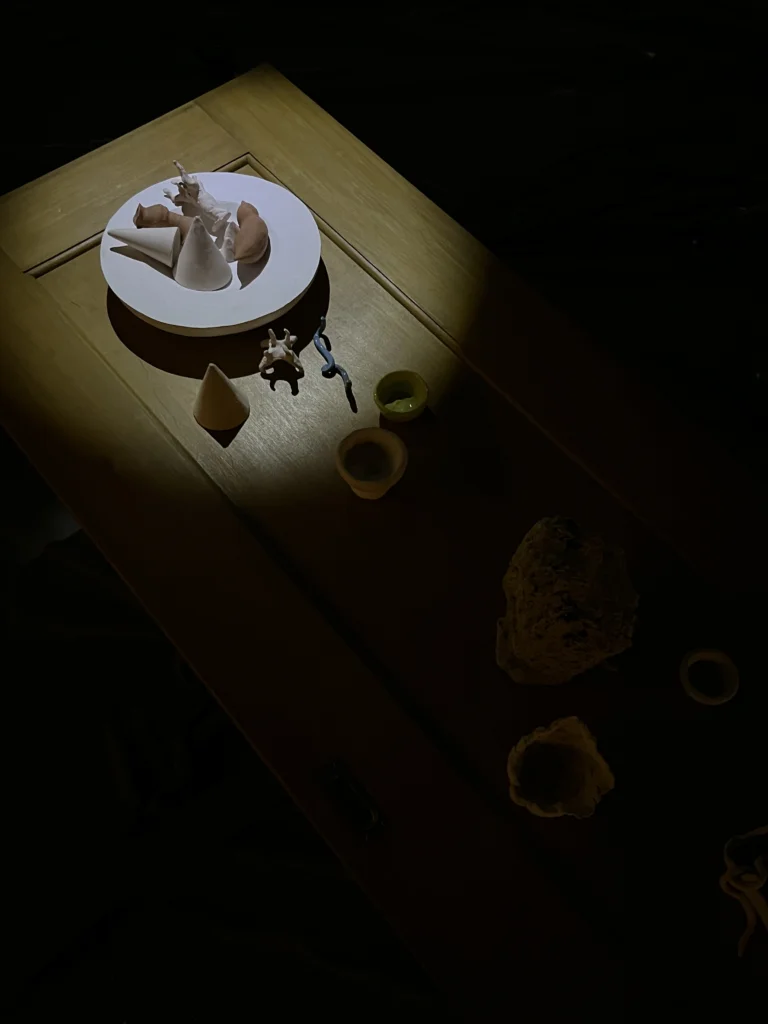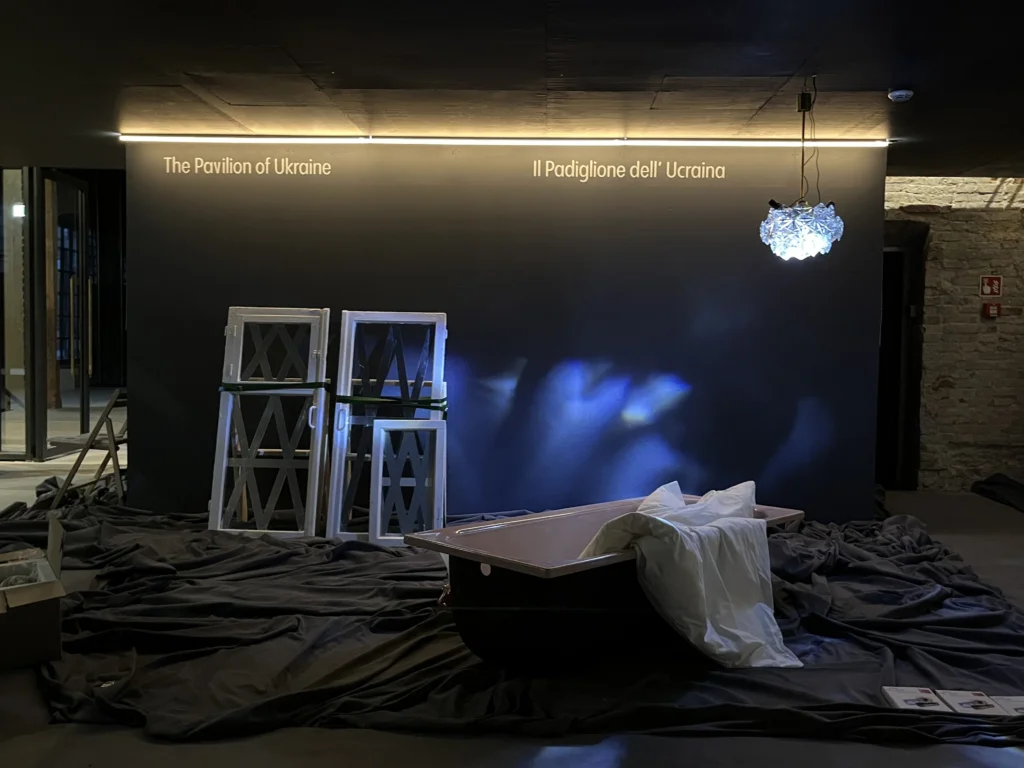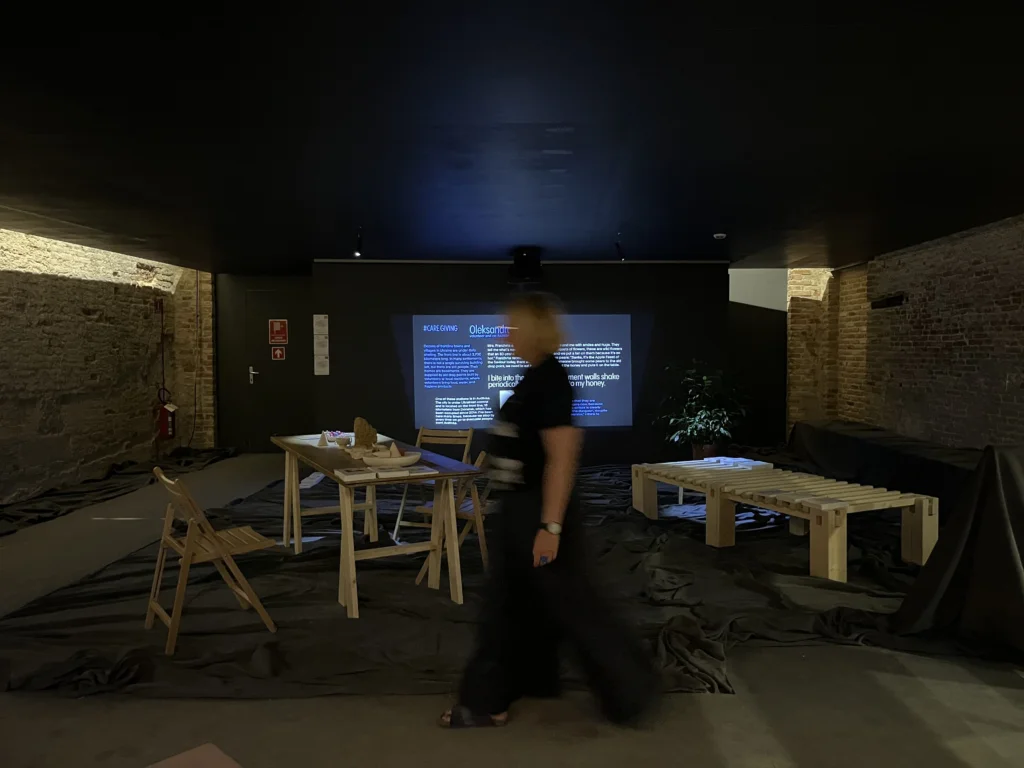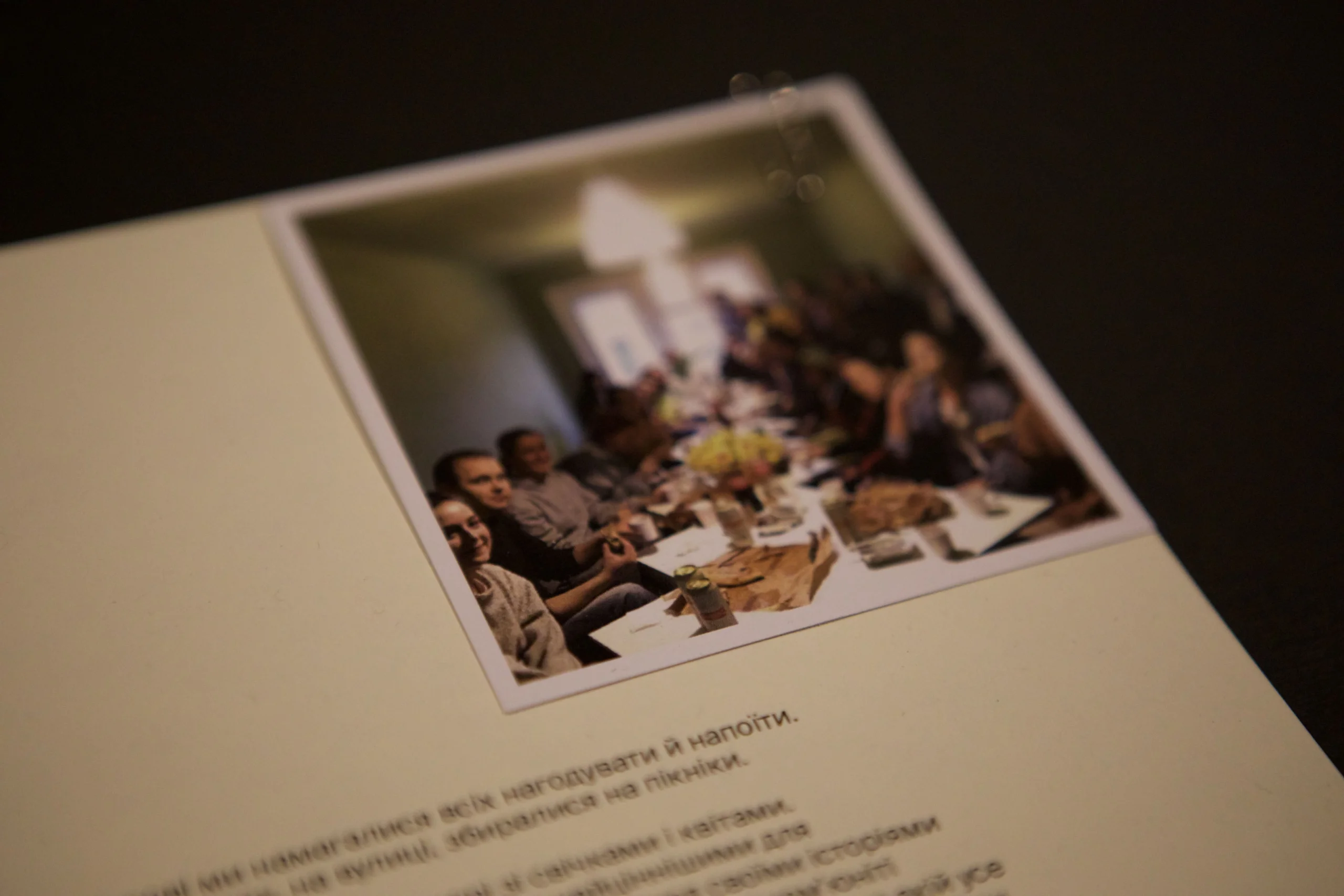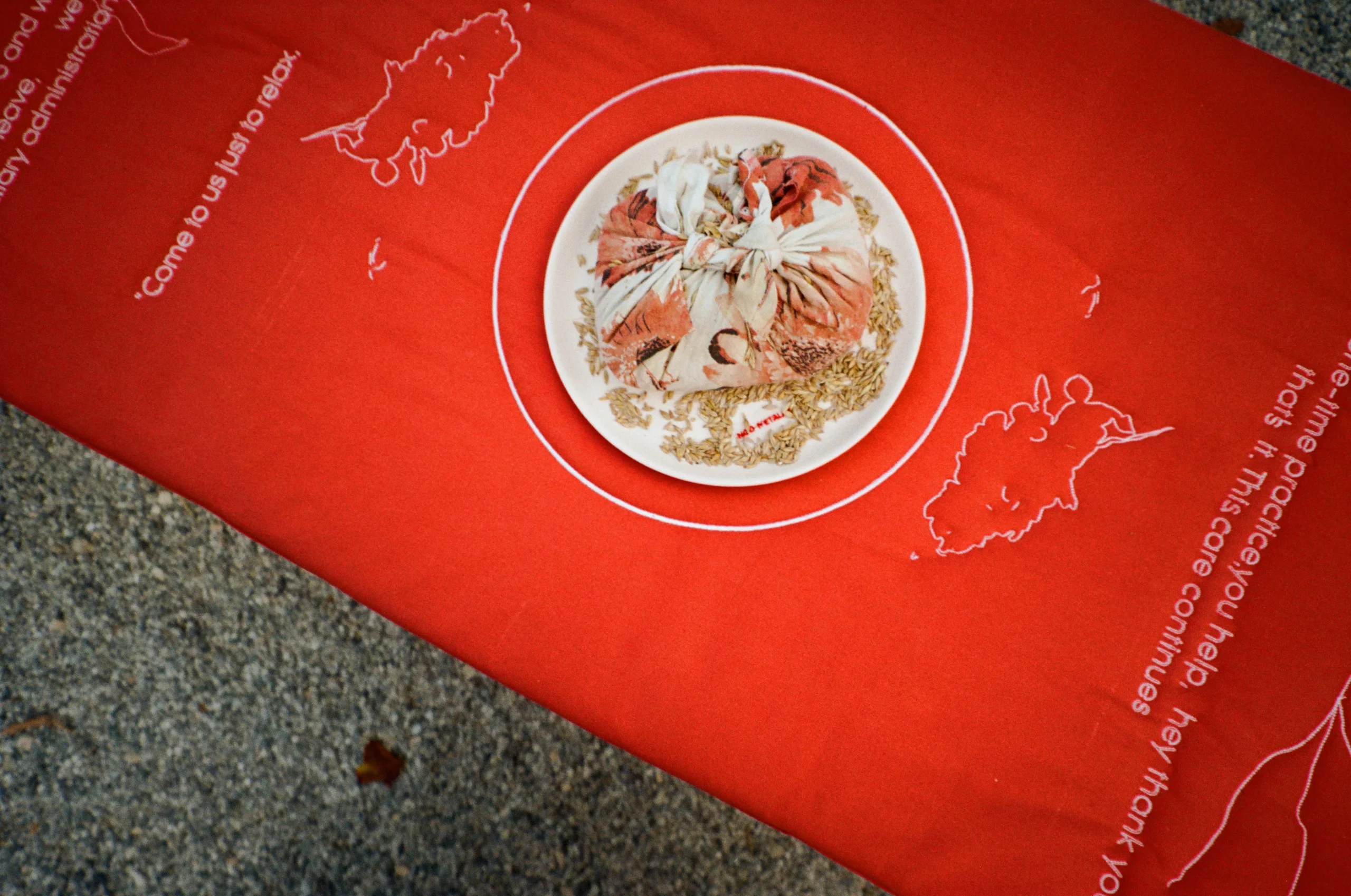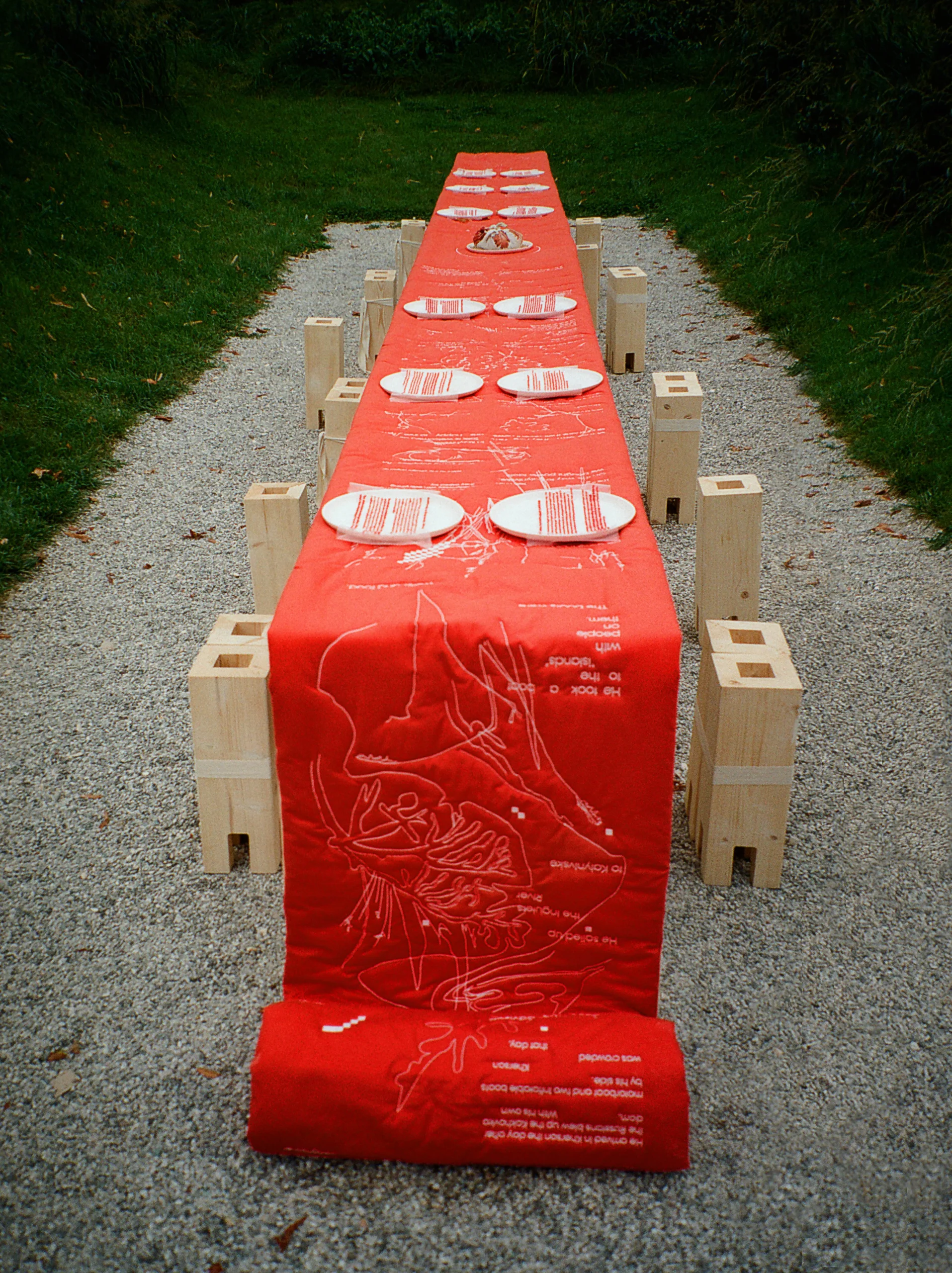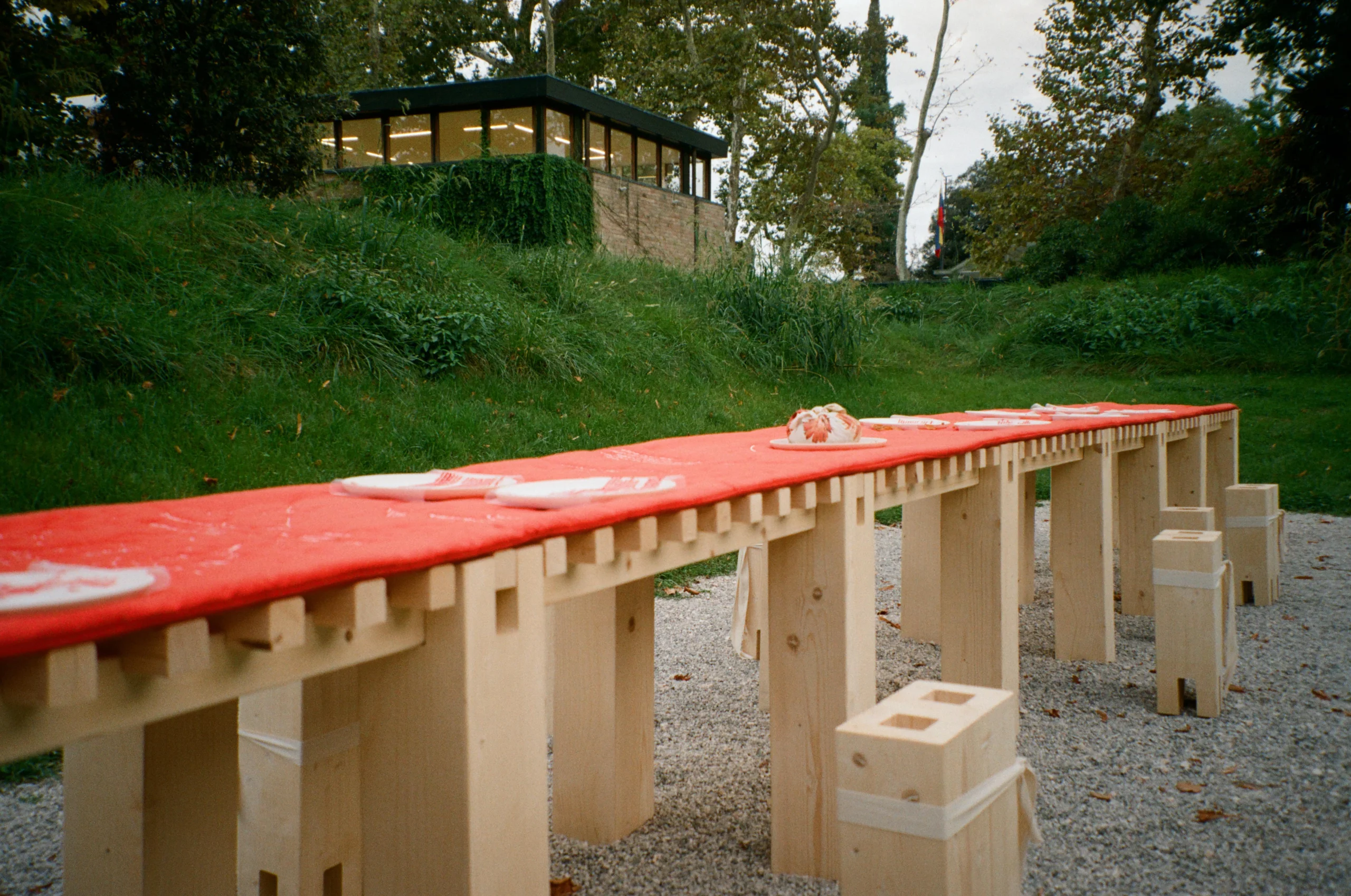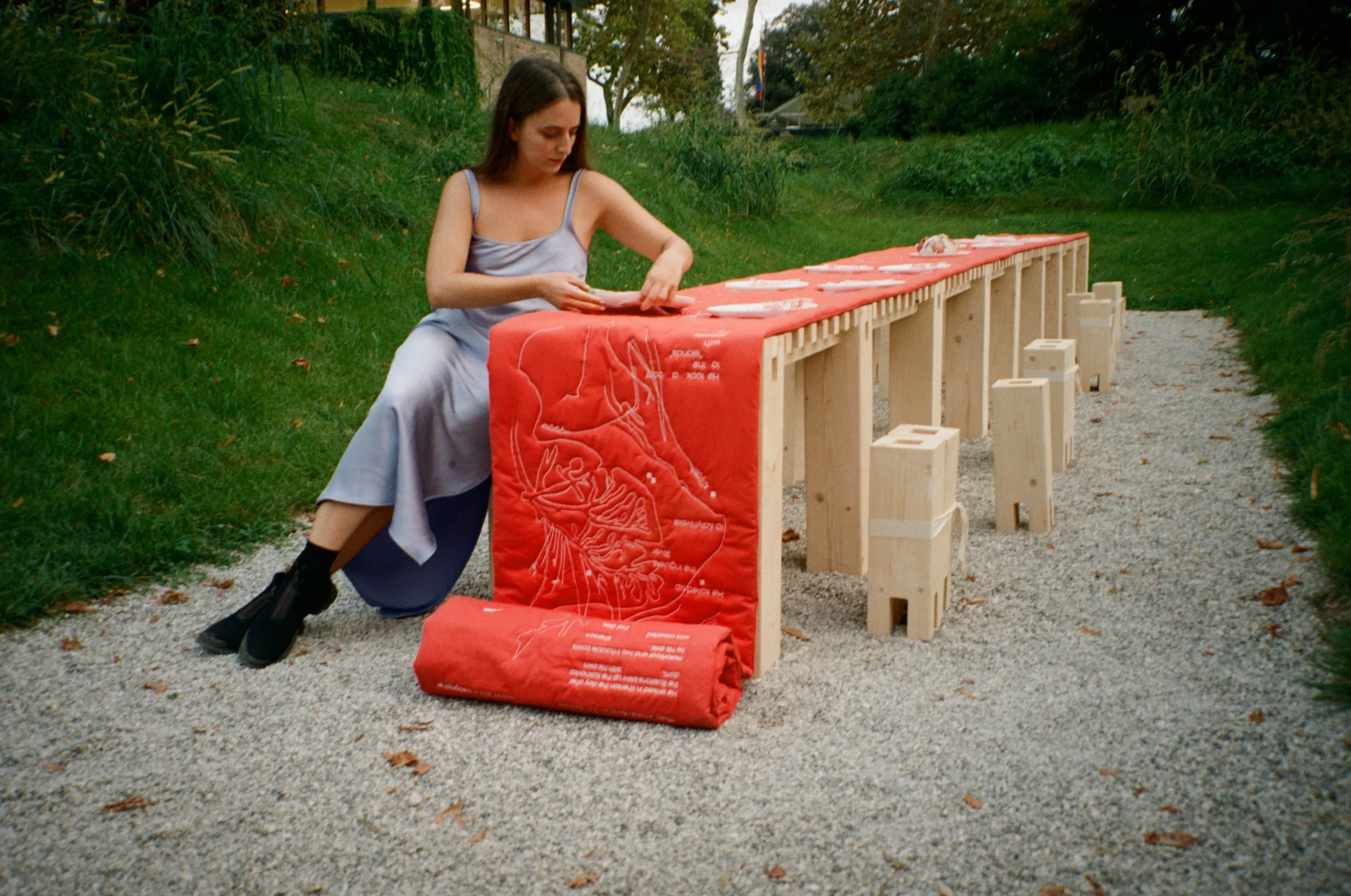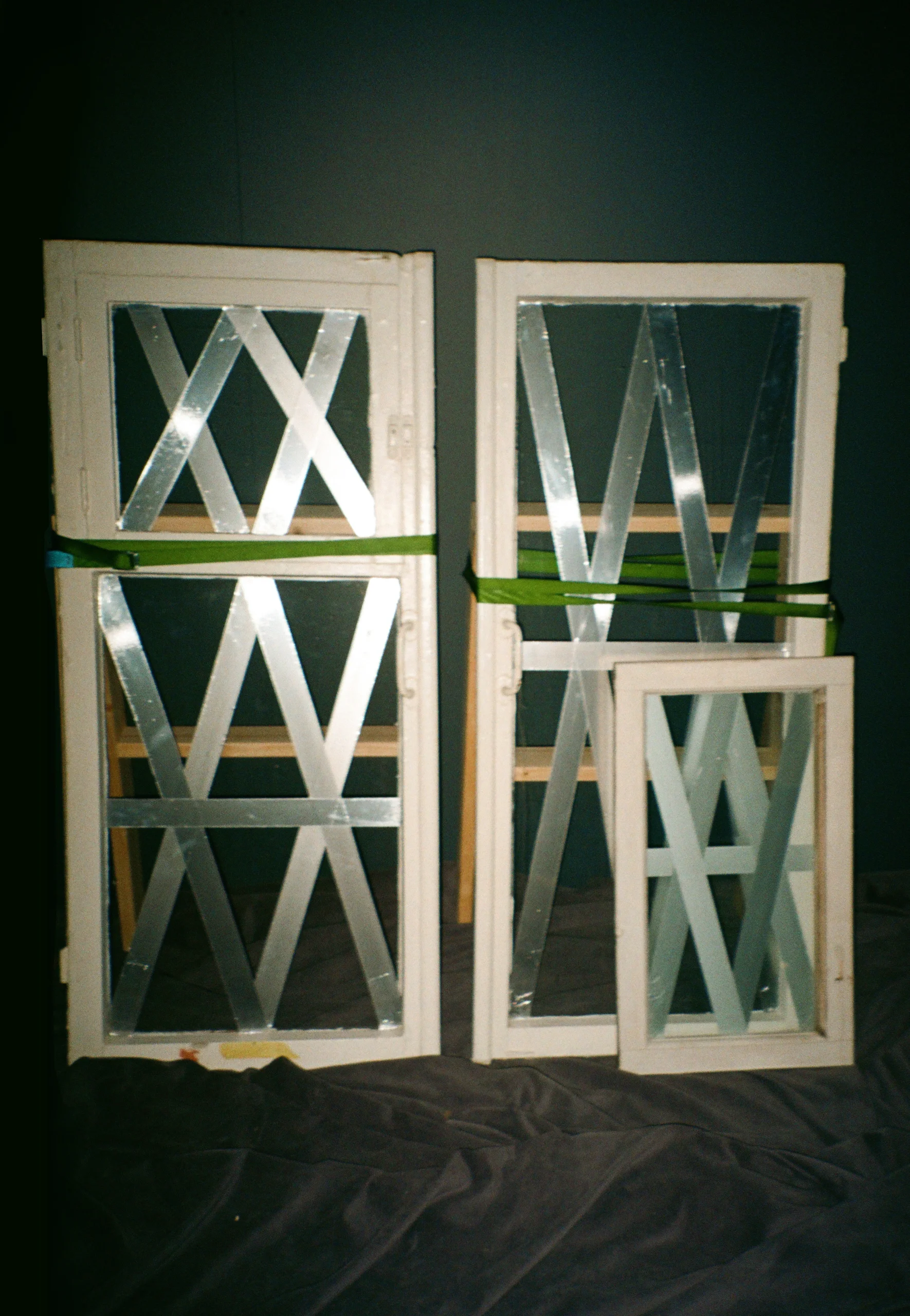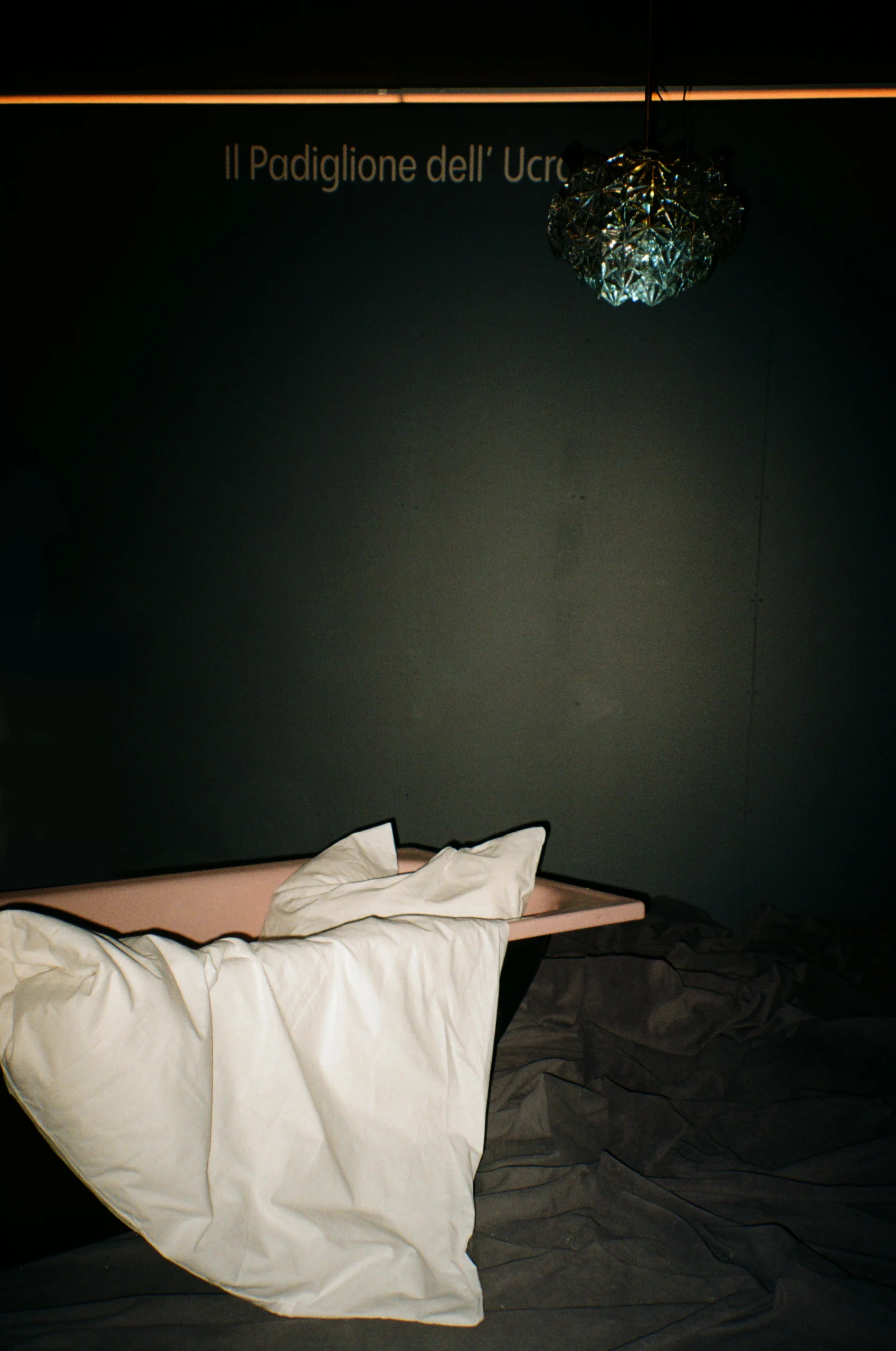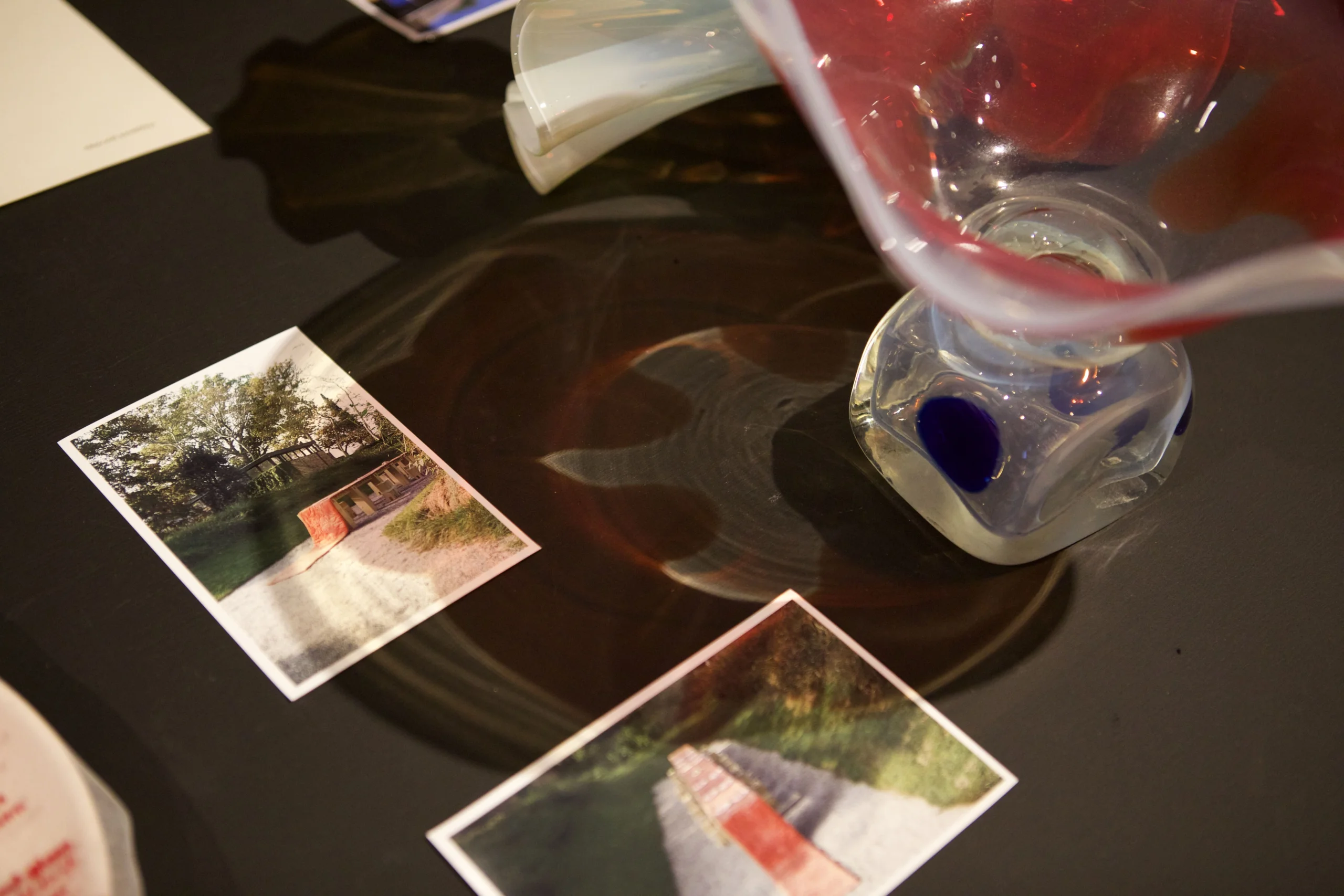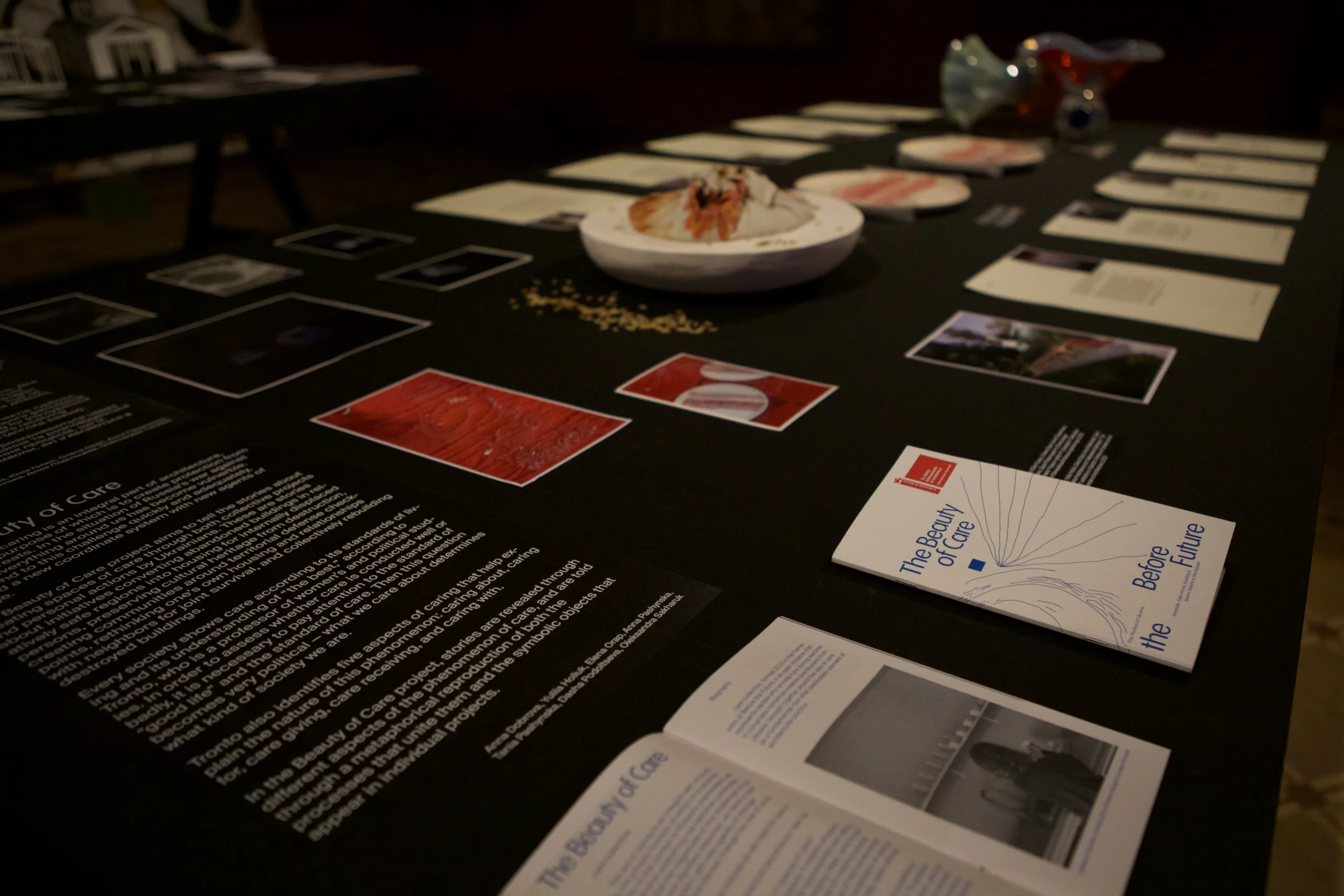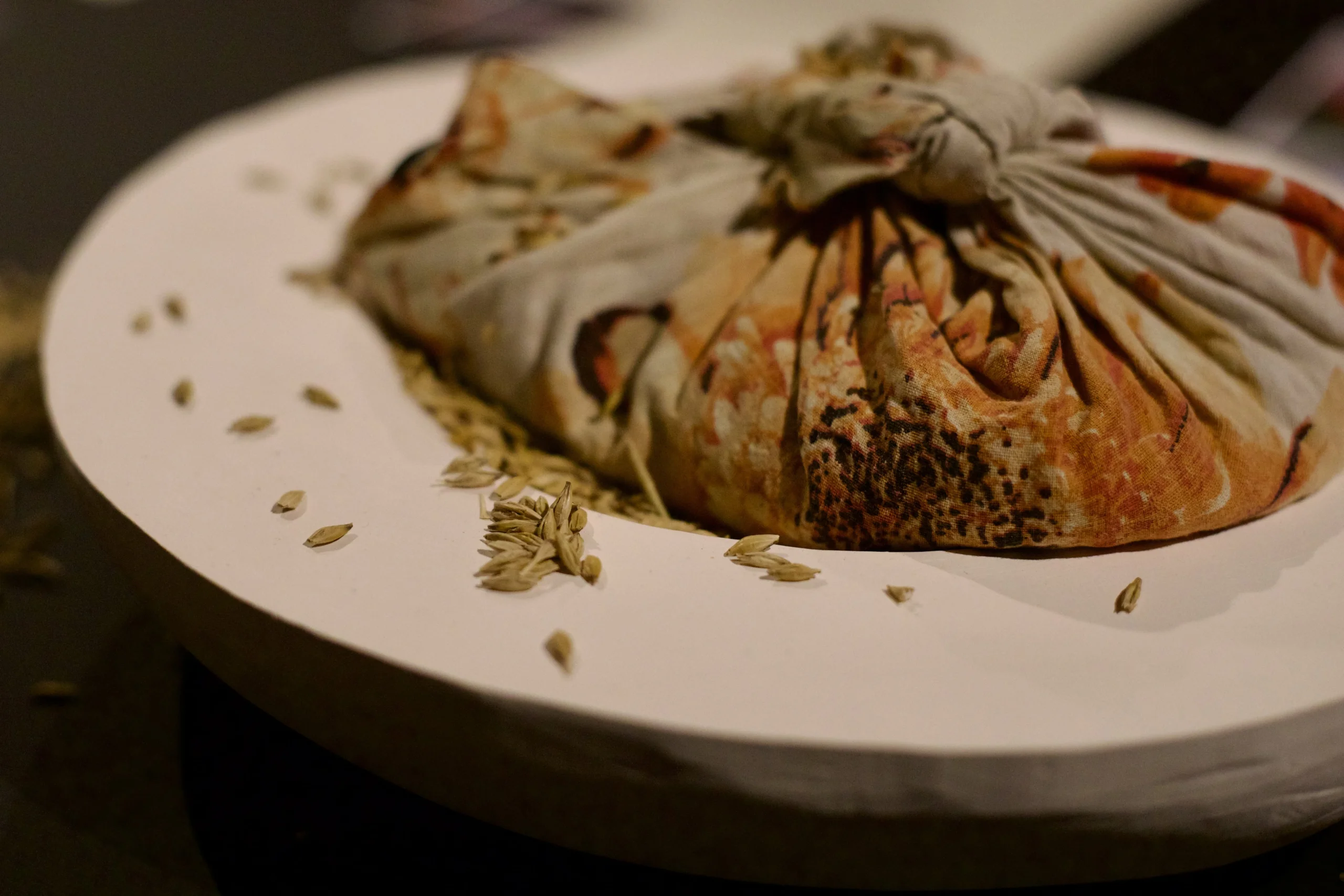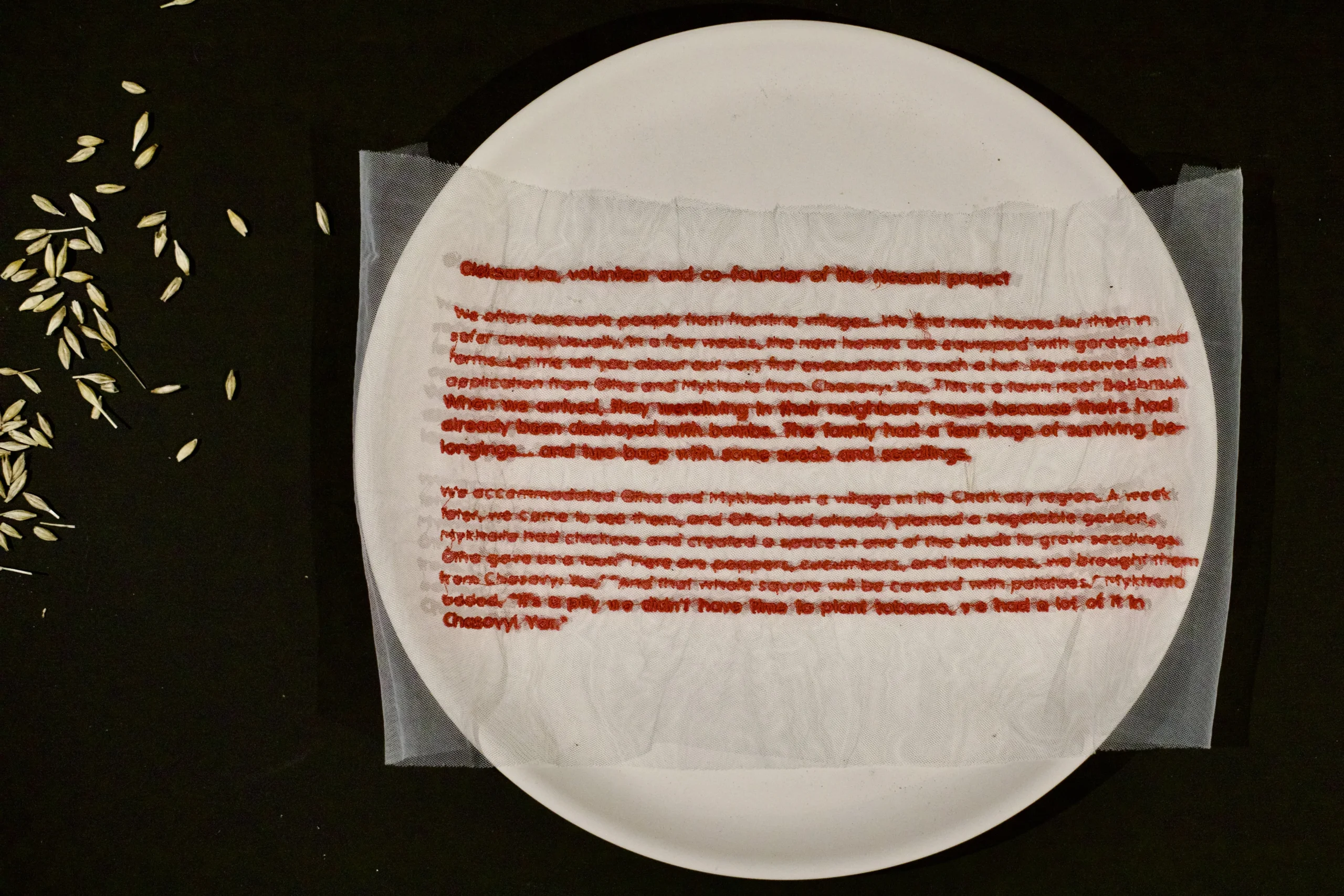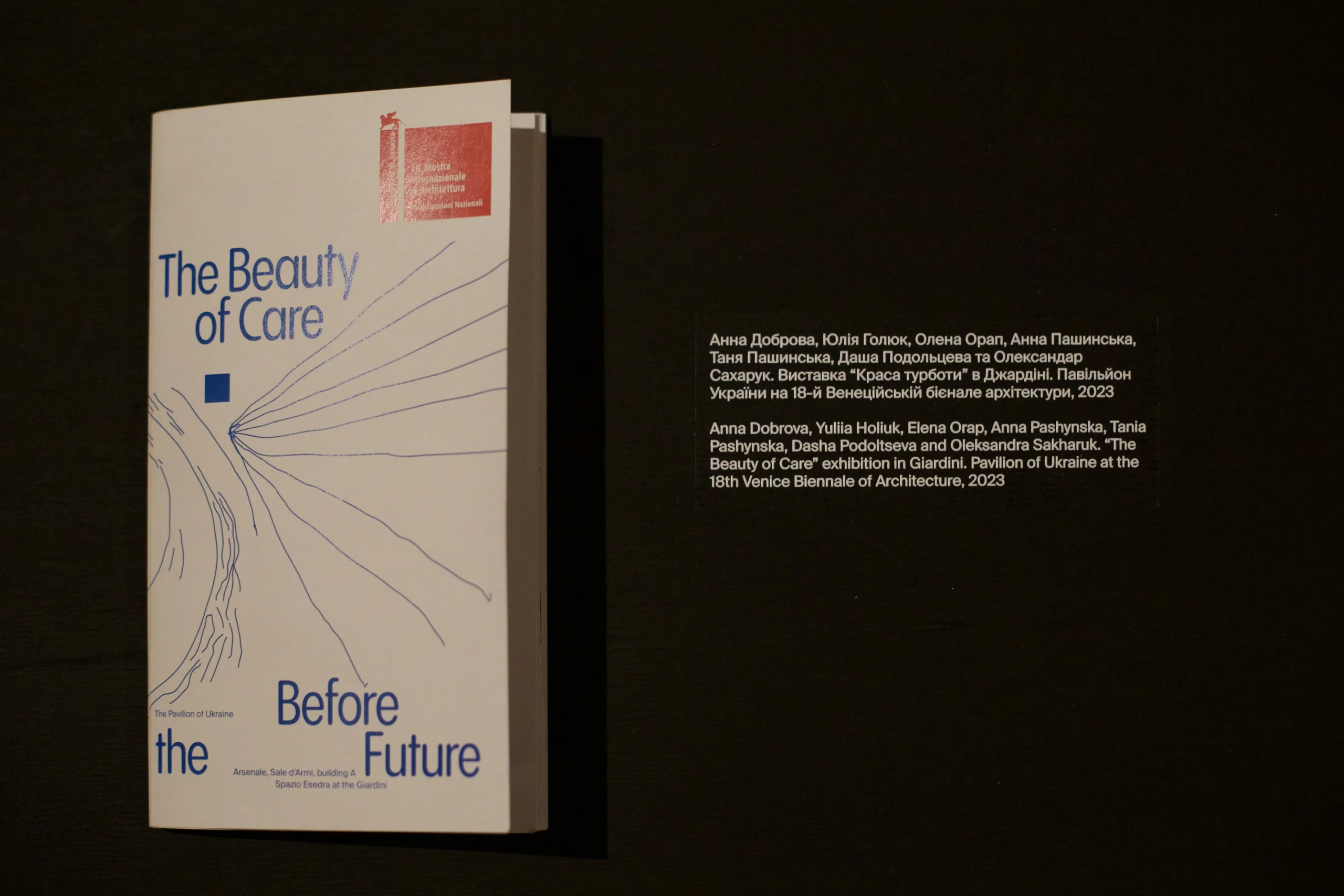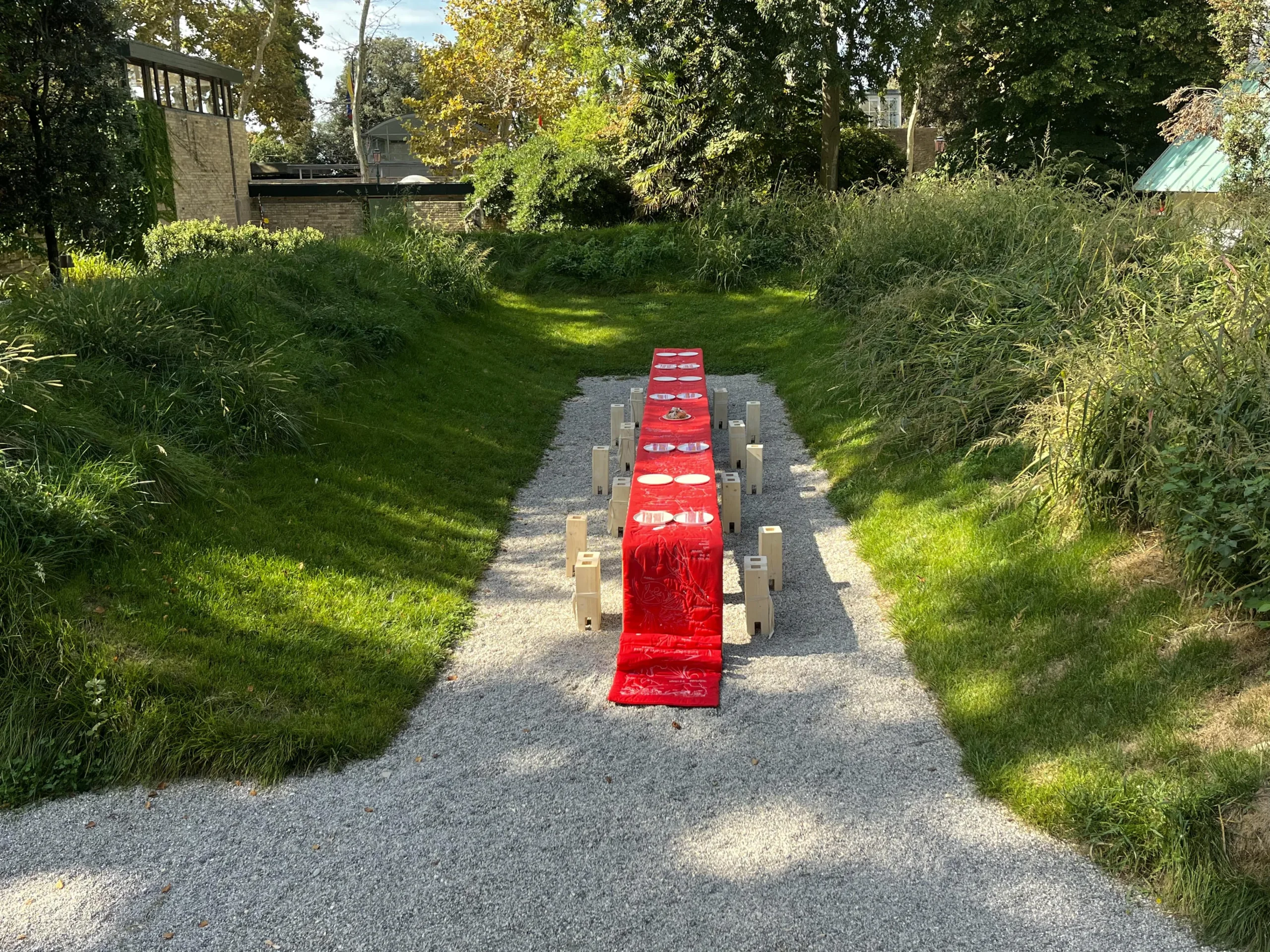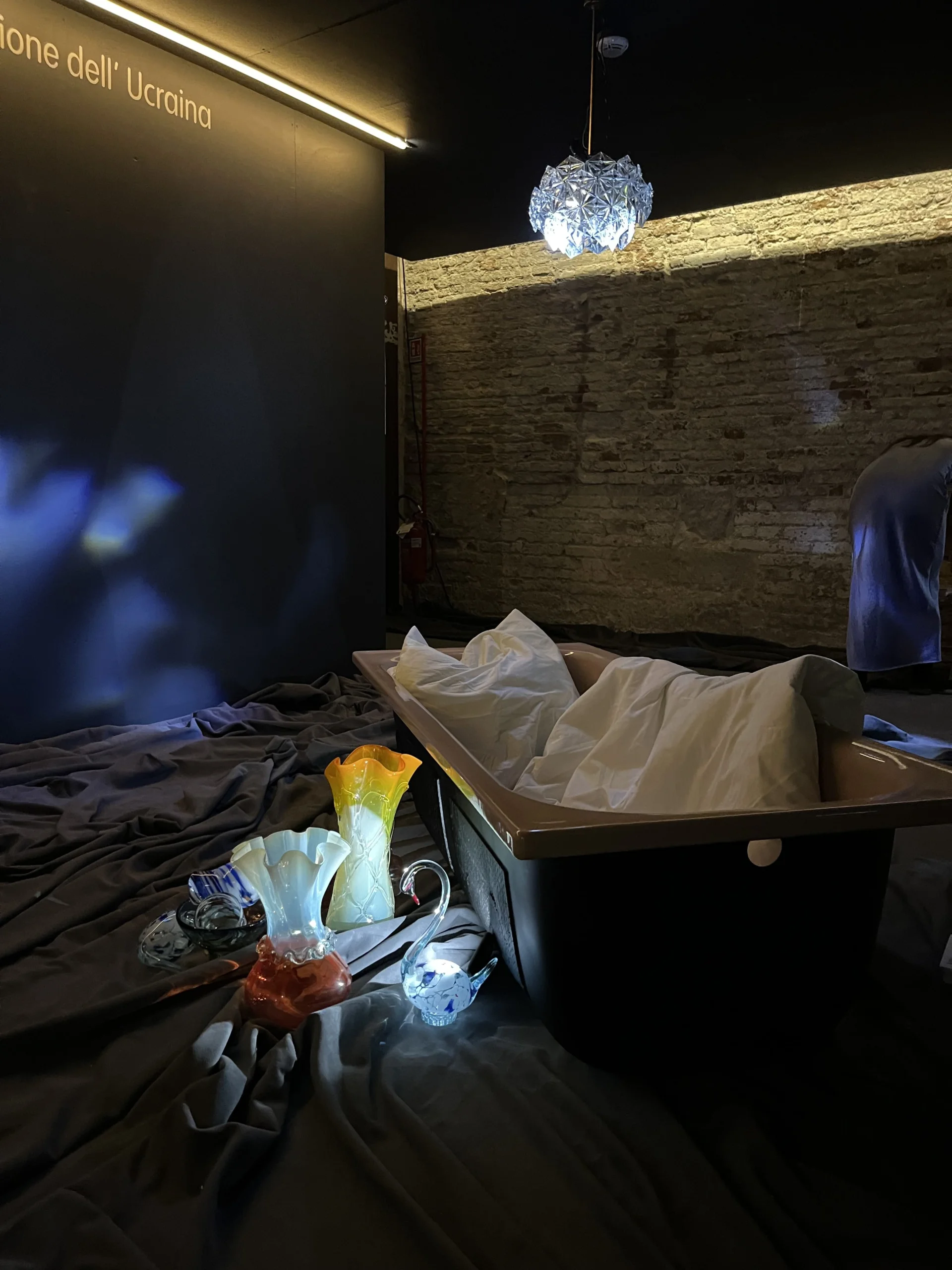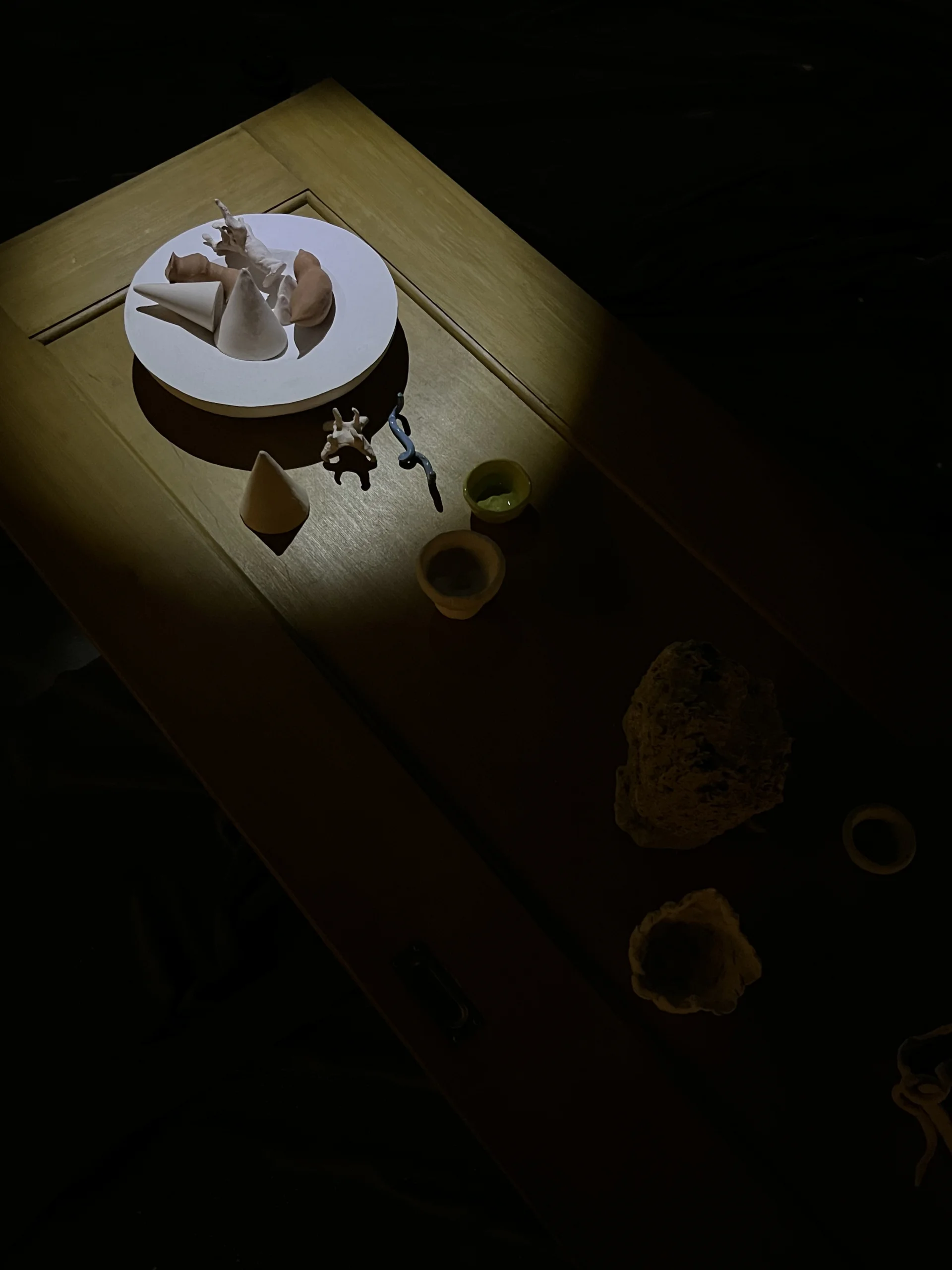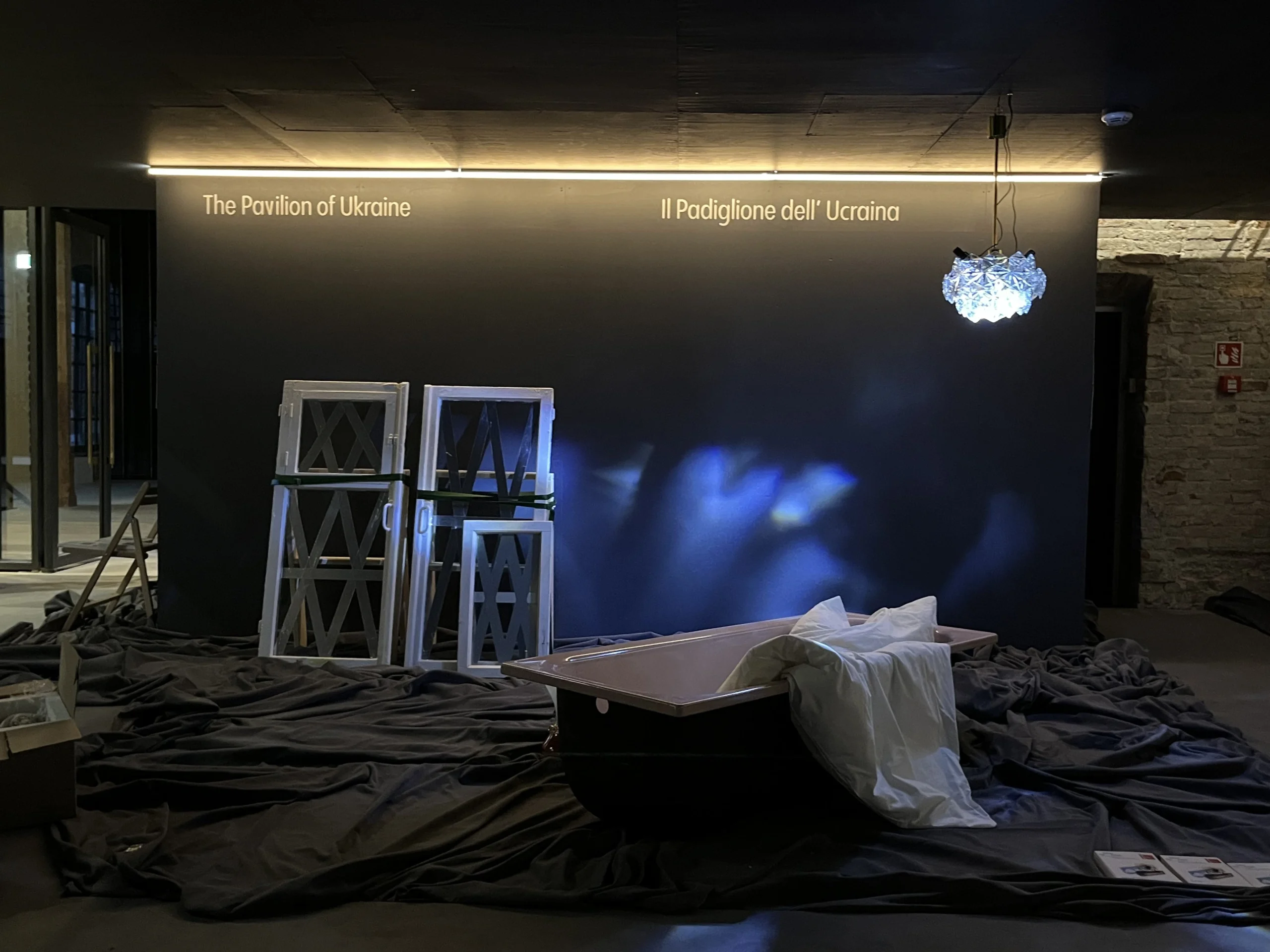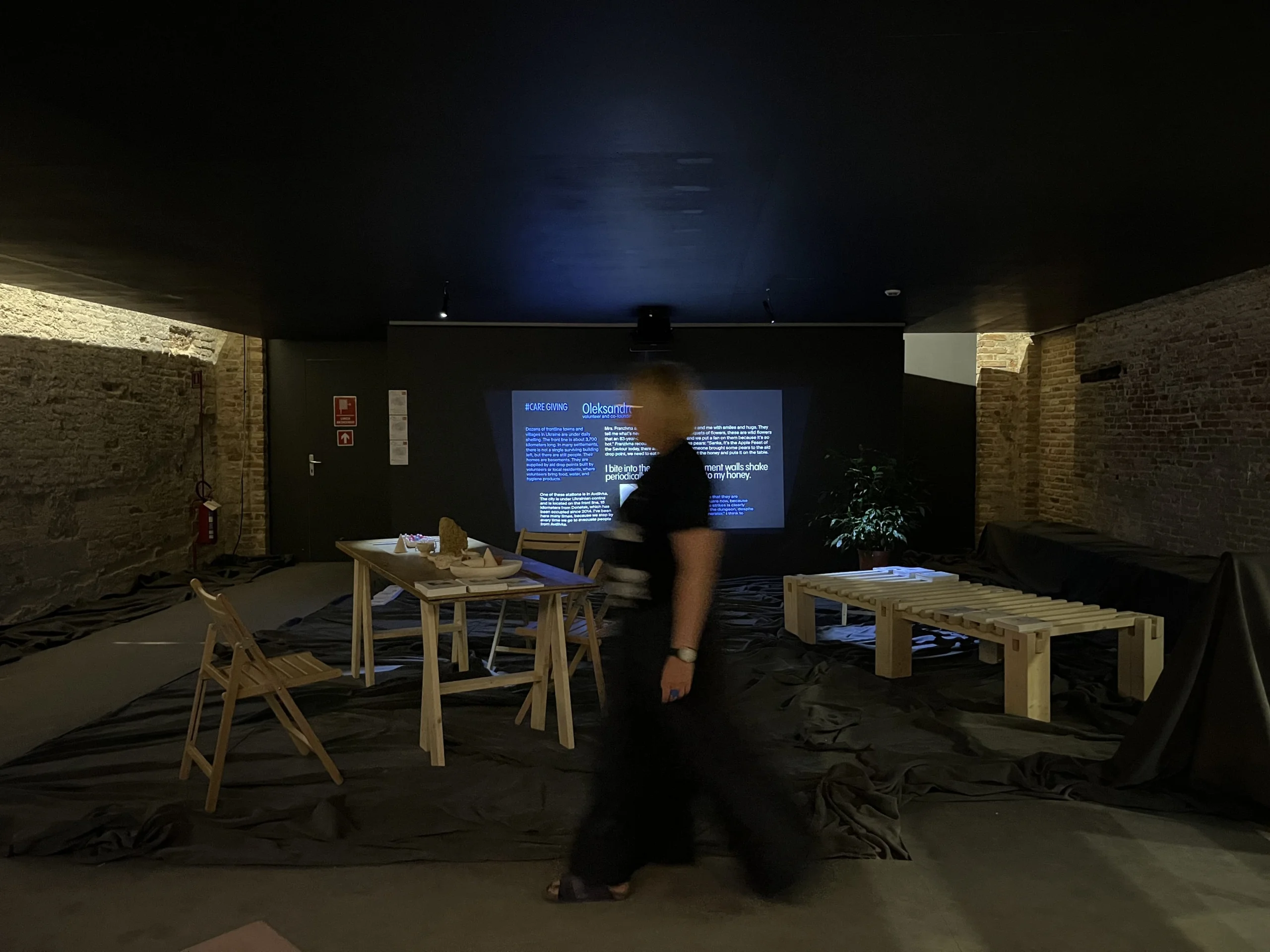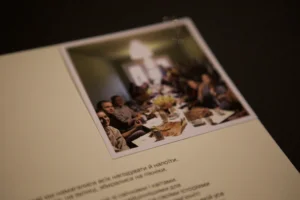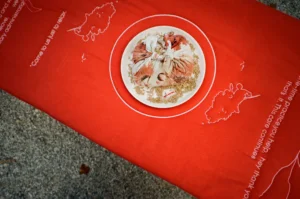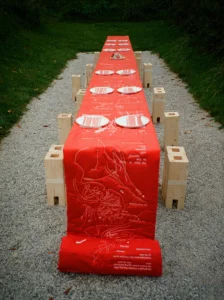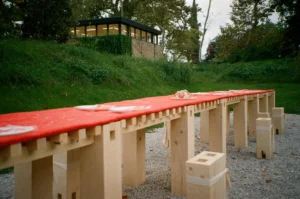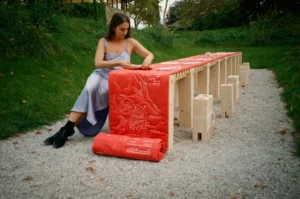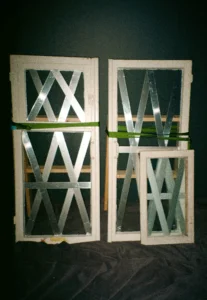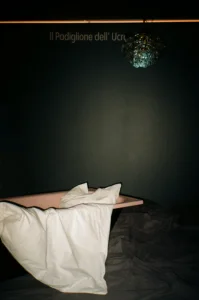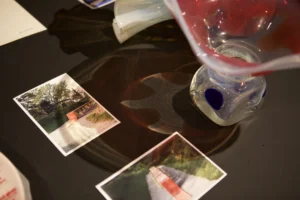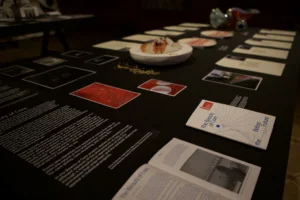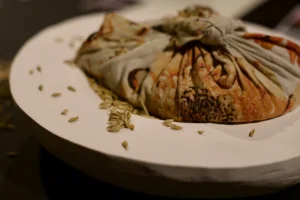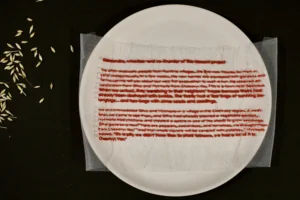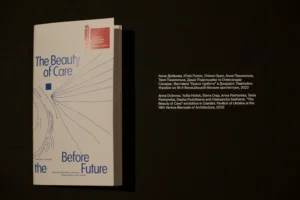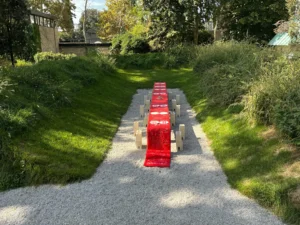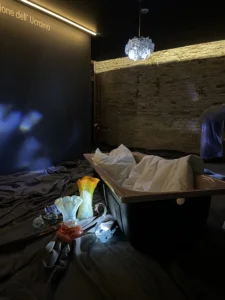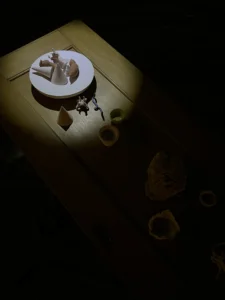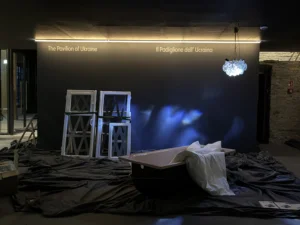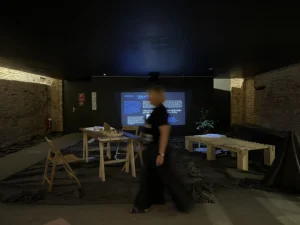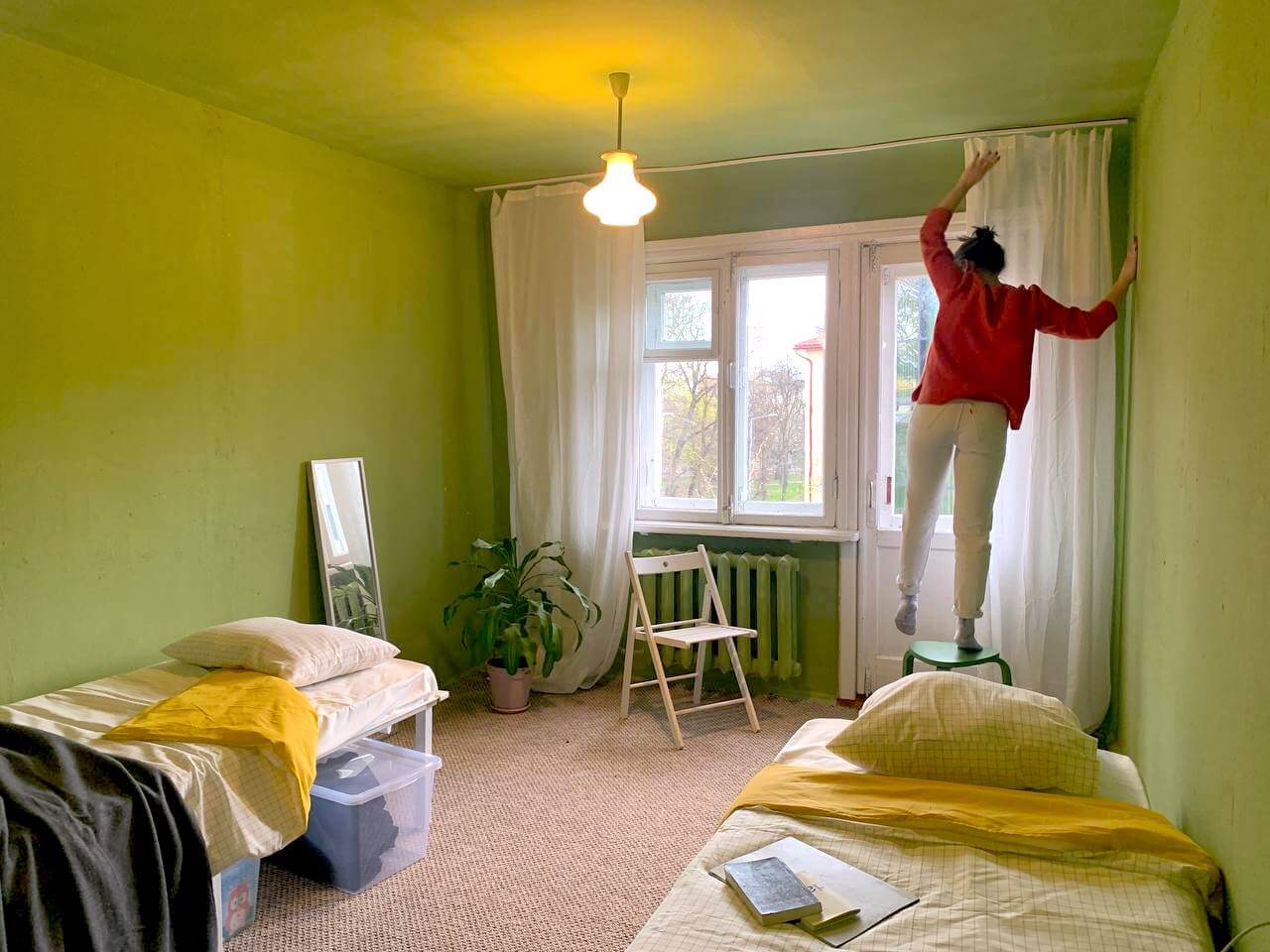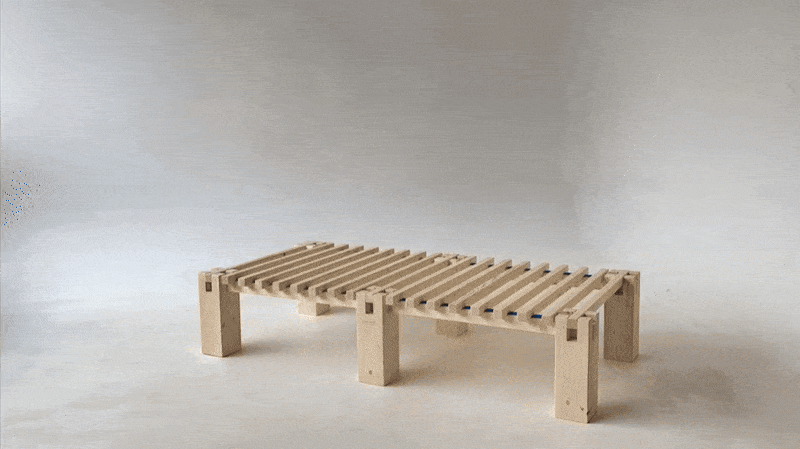METALAB members Anna Pashynska, Anna Dobrova, Tania Pashynska, Yuliia Holiuk, and Yulia Rusylo participated in the 18th Venice Architecture Biennale with a project dedicated to various forms of care in architecture. They gathered stories from people — military, volunteers, artists, etc. — and collective projects in Ukraine and “retold” them using symbolic objects that have acquired new meanings in the war context.
TOPIC: COMMUNITY
FORMAT: event
TIME: 2023
THOSE INVOLVED: Anna Dobrova, Anna Pashynska, Tania Pashynska, Yuliia Holiuk, Dasha Podoltseva, Olena Orap, Oleksandra Sakharuk, Yulia Rusylo
CURATORS: Iryna Miroshnikova, Oleksiy Petrov, Borys Filonenko
PARTNERS: NE SAMI
Part of the METALAB team was involved in creating The Beauty of Care project, which was showcased at the Ukrainian pavilion during the 18th Venice Architecture Biennale in 2023. After a nine-year break, the Ukrainian pavilion returned to the Biennale with the title Before the Future, which echoes the overall theme of the Laboratory of the Future. The pavilion features installations in the Giardini Gardens and the Arsenale.
“The action of caring is an integral part of architecture, the primary purpose of which is to create protection from external threats,” this sentence begins the project description. The team aimed to describe diverse aspects of care through stories of creating protection in the context of a full-scale war that “made everything vulnerable and challenged architecture to create a new coordinate system with new agents of change.” The Beauty of Care emphasizes the process’s beauty, not its results. After all, every society shows care according to its living standards and understanding of “the best.”
“Caring means recognizing a challenge, taking responsibility, and daring to act. Through stories of ideas, actions, and solutions, we want to show the world different ways of creating spaces of care in order to remind us of the fundamental purpose of architecture and to broaden the understanding of the role of architects in society — even beyond war.”
The Beauty of Care collects and shares stories from volunteers, the military, activists, and art and community projects and “retells” them using symbolic objects that have gained new meanings in wartime. These are stories about CO-HATY, preserving cultural heritage from destruction, and communities around territorial defense checkpoints… As well as people’s stories about how they reimagined their own homes or relationships with neighbors for joint survival or rebuilt what was destroyed together. Through these stories, The Beauty of Care team sought to draw the attention of the international and Ukrainian public to social projects and help find support for those in need.
While collecting stories, the team identified two prominent aspects of most initiatives that emphasized the importance of the co-creation of spaces and how they benefit people. Apart from the actual physical space (such as a basement, restored house, art storage, etc.), people get the opportunity to share their experiences, support each other, and find relief in times of danger. Often, activities such as repair work or gardening have become a form of wartime therapy.
These processes were reflected in two locations of the pavilion. The dark room of Arsenale becomes a symbol of an uncomfortable but safe space to hide from threats. It was furnished and made livable, using the experience and skills gained during the war. The objects in the room had descriptions and stories that referred to them, while texts and photos were displayed on one of the walls using a projector.
In the space between the defensive ramparts of the Giardini Garden, we set up a long table (based on the design of the CO-HATY bed) and put on an “endless” tablecloth with embroidered stories on it. Our designer, Yulia Rusilo, created its design. The infinity of the tablecloth indicates that the war is not over, so stories continue to emerge. The table represents a symbol of communal dining, which serves as a customary means of exchanging knowledge and experience. At the center of the table was a bundle of grains that Anna and Tania brought from the village of Kalynivske, where they assisted residents in rebuilding their homes that were damaged due to the Russian bombing of the Kakhovka hydroelectric power station.
The entire METALAB team participated in the final preparations before packing and sending the items to Venice. As a result, the implementation process became an integral part of the project — another story of caring.
